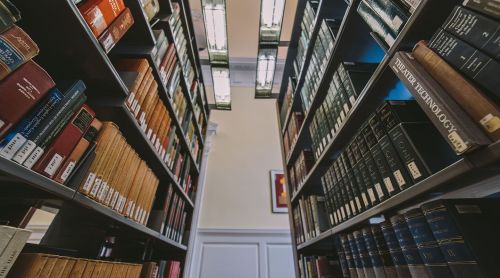
Internships and Fellowships
Every year, St. John’s College awards funded internships and fellowships across disciplines to our students. In addition, every student who wants a paid internship, and who will work with the college’s process for placement, will receive one. A selection of recent awards is below.
Explore By Field:
Fields
-
STEM
-
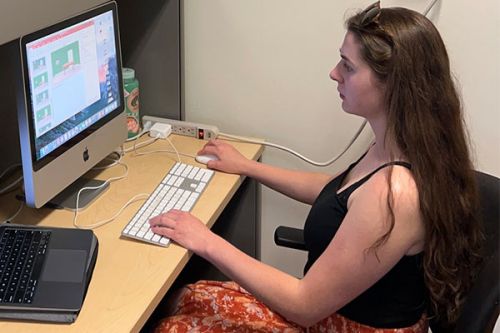
Zohar Na’aman (SF24)
Language, Development, and Cognition Lab, Colorado University-Boulder
Intern"I can now look at my future after St. John’s, especially with respect to graduate school, with anticipation rather than trepidation because I received vital career experience and insight into real research at an academic institution."
-
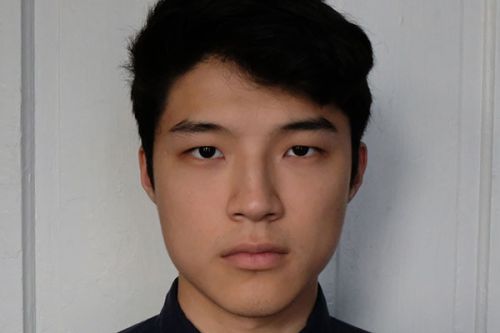
Tergel Tuvshinjargal (A22)
University of California, Berkeley
Course: Linear Algebra and Differential Equations“It showed me why I am interested in mathematics, aside from the theoretical discussion. The practical application of everything I learned seemed significant and necessary for the world we live in today.”
-
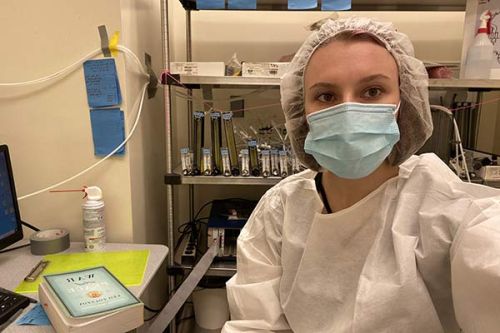
Sandrina Mislitchi (SF22)
University of Chicago
Research Assistant“During my time at the University of Chicago, [Professor Leslie Kay (SF82)] introduced me to several of her colleagues in the field, explained how to find and apply to graduate programs, and discussed other potential paths I could take after graduation.”
-
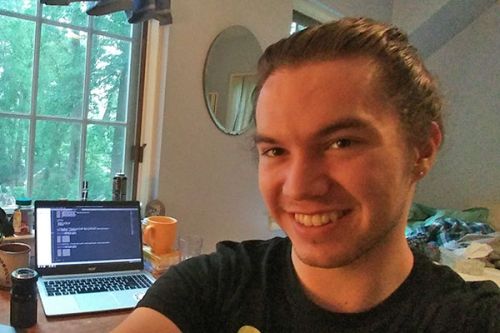
Raphael Rose (A22)
NASA Goddard Space Flight Center, Gravitational Astrophysics Lab
Intern“The confidence I have learned in teaching myself [was] immeasurably useful in an internship where I lack[ed] most of the background knowledge.”
-
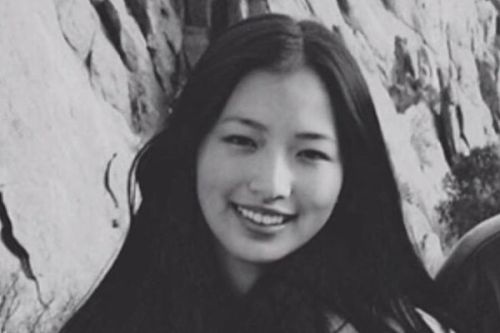
Tang Li (SF21)
University of Chicago
Research Assistant“I found during my summer internship that the kind of rigor in thinking practiced in St. John's classrooms is very beneficial for doing well in a research setting.”
-
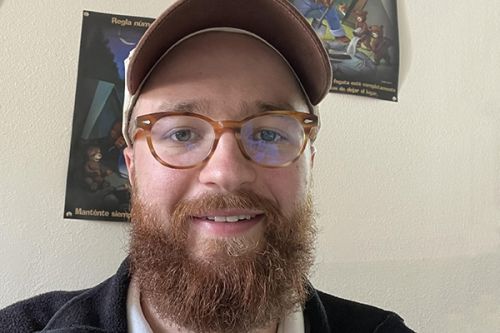
David Michalove (SF22)
Unity College, New Gloucester, ME
Course: Environmental GIS“I found it empowering to learn how to be an active researcher, how to go through and digest scholarly articles on a subject which invariably impacts my work and life.”
-
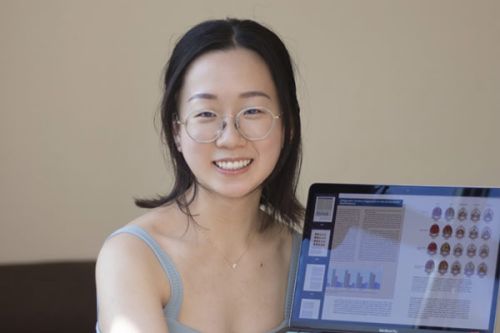
Tong “Cynthia” Wu (A23)
Johns Hopkins University
Course: Behavioral Endocrinology“After St. John's College, I wish to pursue education in animal science. The course offered me a new prospective field of study that I could explore further.”
-
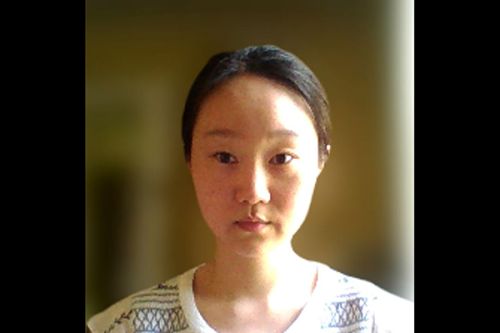
Sohyeon Jung (SF21)
Central New Mexico College, Albuquerque, NM
Course: Data Science Bootcamp“I chose to take a boot camp rather than typical computer programming courses offered from regular summer school education. I want to be a data scientist, and I needed project experience."
-
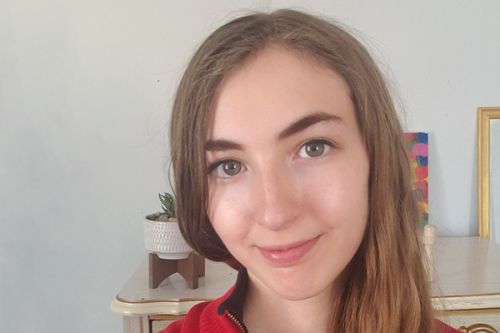
Genevieve DeMajistre (A22)
Smithsonian Environmental Research Center (SERC)
Intern“I am interested in how scientific observations can be used in areas such as ecological gardening, wildlife conservation, and the rebuilding of ecosystems in ways that help combat climate change.”
-
-
Law
-
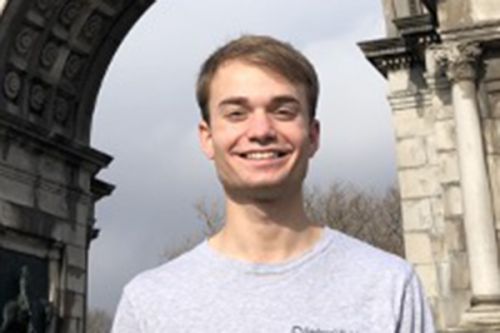
Jameson Marshall (A20)
Office of the Federal Public Defender Service, District of Maryland, Baltimore
Intern“Most of the work involved in legal defense isn’t glamorous. You won’t find it in many TV shows or movies, but it is important. People’s lives are at stake.”
-
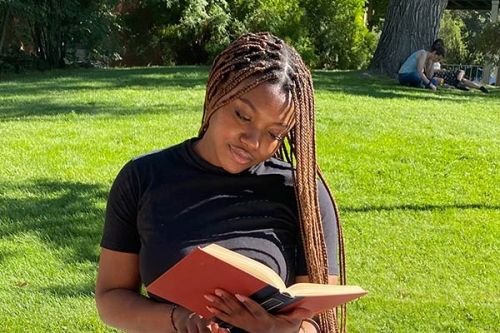
Georgenia Nkwocha (SF22)
Harvard University
Course: Introduction to Law and Contemporary Debates“I saw this as a chance to apply the philosophical method of thinking that St. John’s initiates, to better understand the legal field.”
-
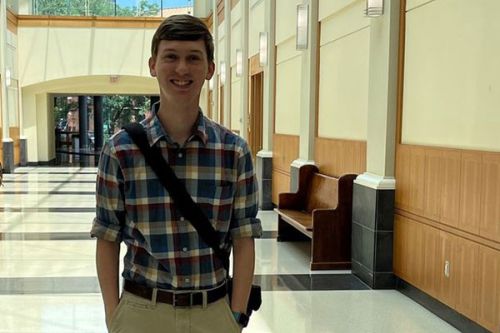
James Dormer (A24)
Anne Arundel County State’s Attorney’s Office for Maryland
Intern"St. John’s has taught me how to read things with a careful eye without sacrificing speed."
-
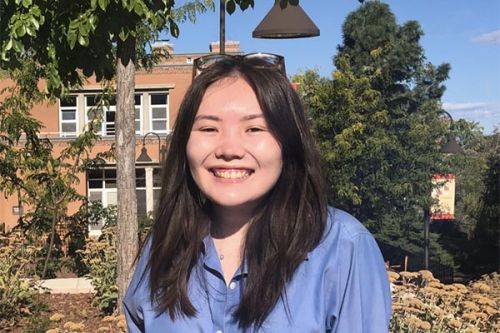
Zhansaya Kuatzhan (SF22)
Hinkle Shanor LLP, Santa Fe, NM
Litigation Assistant“It is uncommon for undergraduates interested in law to be able to land an internship at a law firm, so I jumped at the chance.”
-
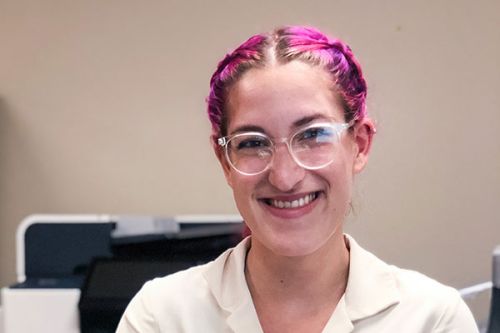
Tessa Wild (A23)
Maryland Office of Public Defense, Annapolis, MD
Intern“Being able to observe the day-to-day activities of a public defender, which are often hectic and complicated, gave me immeasurable insight into what a career in law could actually look like for me.”
-
-
Service
-
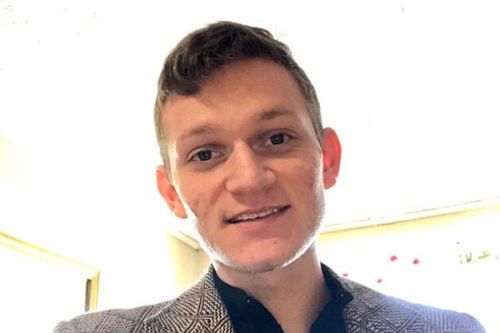
Conor Flynn (A22)
International Rescue Committee, Baltimore, MD
Intern“In meeting other people in the capacity of social work, I fell back on my experiences of listening with the compassionate, kind, and humanizing sentiments to be found in the St. John’s Program.”
-
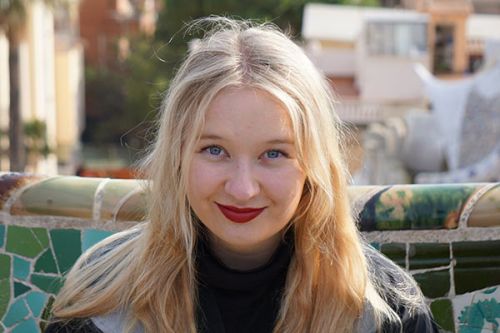
Sylvaine Bucher (SF21)
The Borgen Project, Tacoma, WA
Intern“As I embark on my path to being a public administrator, an inside view of a nonprofit is vital.”
-
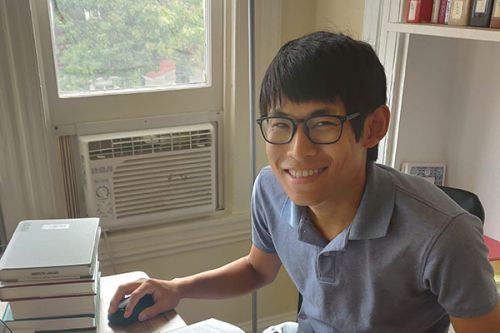
Ray Matsumoto (A22)
Pacific Atrocities Education, San Francisco, California
“I plan to intern at Pacific Atrocities Education again to write a better publication. Eventually, I want to teach these events of World War II to students and maybe work to transform education policy and curriculum.”
-
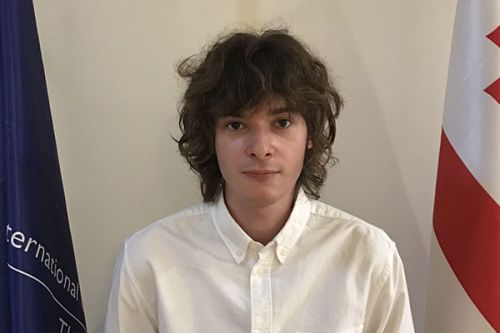
Levan Kiladze (A22)
International Organization for Migration (IOM), Tbilisi, Georgia
Intern“Participating in various administrative aspects of IOM’s projects has given me a good sense of how international organizations work with the government, NGOs, media, and the public.”
-
-
Business
-
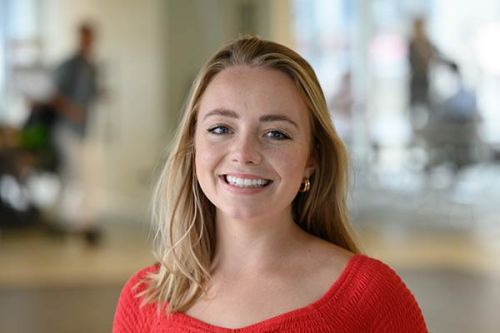
Leah March (SF23)
London School of Economics
Course: The Wealth (and Poverty) of Nations: Global Economic Development Past and Present“Advocating for economic mobility through equitable policy is one of my life’s great goals, and understanding the origins of modern wealth and poverty is critical to that pursuit.”
-
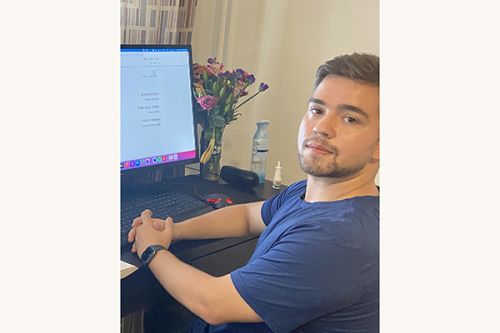
Rei Osmani (A22)
University of California, Berkeley
Course: Financial Accounting“The program’s goal was to assist me in getting a more technical education in the financial domain. My experience during the summer not only accomplished that but also helped guide me in a more realistic career path.”
-
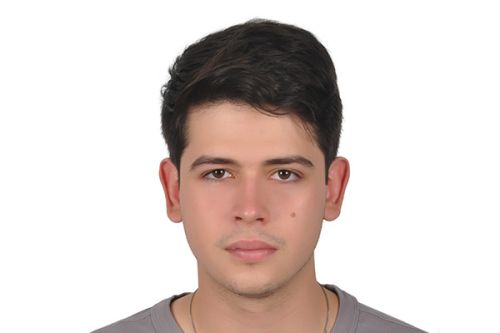
Esteban (Joaquin) Gamarra Jordan (SF21)
Bocconi University, Milan, Italy
Course: Digital Marketing“Before going into this course I had minimal knowledge of marketing, and this course is beginner-friendly as it provides an overview of marketing without any of its technicalities.”
-
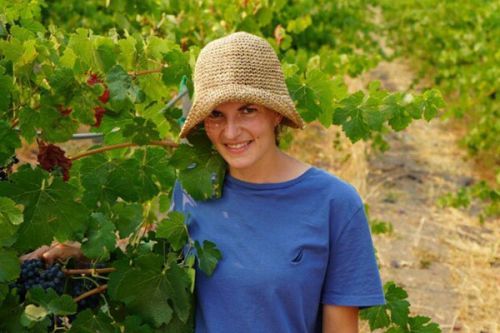
Cora Clark (A21)
Duckhorn Portfolio, St. Helena, California
Intern“Nowhere else but in the wine capitals of the world does one find field work that can be done only by human beings; nowhere else can you walk through vast farm fields and see no tractor smoke and hear no silos.”
-
-
Health
-
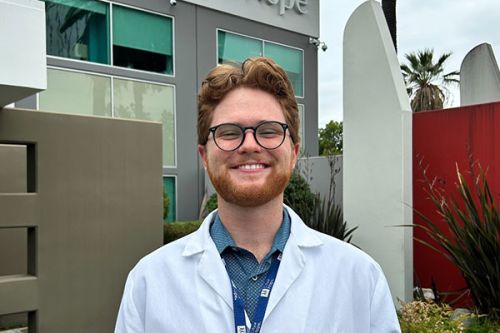
Caleb Briggs (A25)
T-Cell Therapeutics Research Laboratory at the Beckman Research Institute of City of Hope
Intern“Learning how to read well and how to ask the right questions was a great help when I was reading multiple scientific papers a week. Dealing with gray areas and ethical challenges was also easier thanks to previous experiences of wrestling with difficult questions in seminar and tutorials.”
-
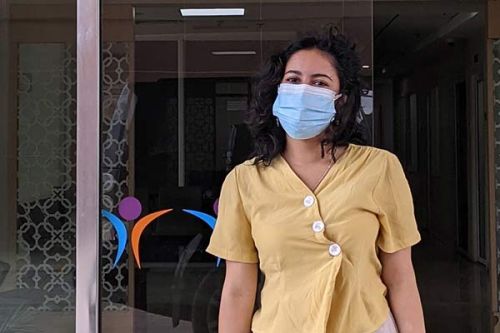
Apurva Sharma (A23)
Nepal Mediciti Hospital, Kathmandu, Nepal
Intern“The conversations between the doctors and the patients were fascinating; it felt very professional yet intimate. I realized it is very taxing on both ends to trust someone with your life and to be responsible for someone else’s life. But it is a beautiful exchange.”
-
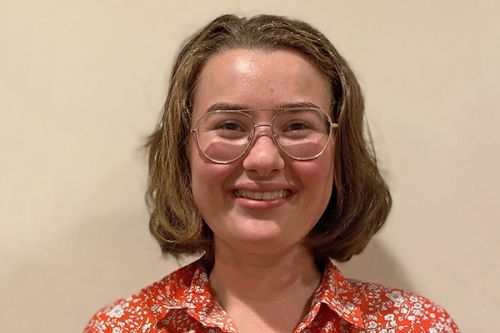
Dylan Michael (SF22)
Magee Women's Research Institute, Pittsburgh, PA
Research Assistant“Women’s health is one of the fields that was neglected for so long, and now with the work done by MWRI, it is finally moving forward, and I wanted to be a part of that remarkable mission.”
-
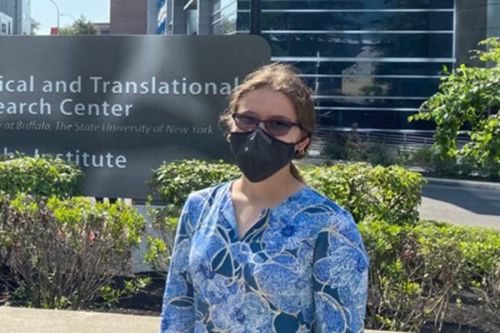
Katherine Quinn (A22)
Jacobs School of Medicine and Biology, SUNY Buffalo
Intern“I knew before this summer that I like reading and synthesizing large amounts of information; it was the more hands-on aspects of the work [that were] new to me, expanding my knowledge of how I like to work.”
-
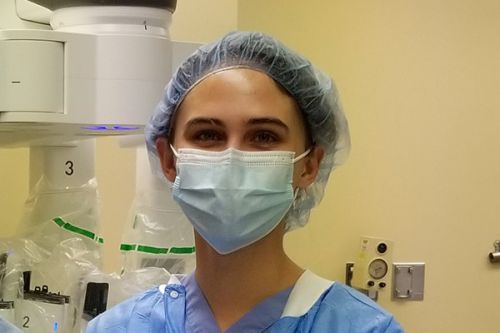
Sydney Whitten (SF23)
Ascension St. Vincent Hospital, Indianapolis, Indiana
Intern“I learned more through these experiences than any amount of research could have taught me. ... I achieved exactly what I set out to with my time—a more informed future.”
-
-
Media
-
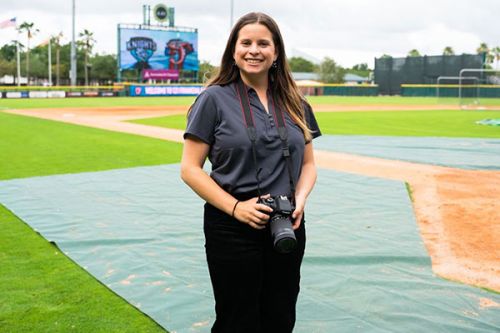
Lainey Rendelman (A26)
Jacksonville Jumbo Shrimp Baseball Club
Intern“One of the most frequently asked questions I receive pertaining to my education is, ‘Why would you go to a school like St. John’s if you want to work in sports broadcasting?' My answer to this question remains the same: St. John’s is teaching me through Seminar how to be an effective communicator."
-
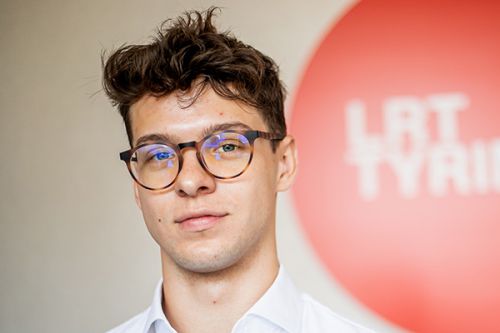
Kasparas Adomaitis (A23)
Lithuanian Radio and Television, Investigative Journalism Division
Intern“My time at LRT helped me see that a liberal arts education is very useful when pursuing a career in journalism, as it teaches open-mindedness and passion for seeking the truth, which are both beneficial for succeeding in this field.”
-

Miselo Matipa (SF22)
Boston University
Course: Storytelling for Film and Television“I learnt a lot and feel prepared to keep working at pursuing film and television and developing my voice as a storyteller, creator, and artist.”
-
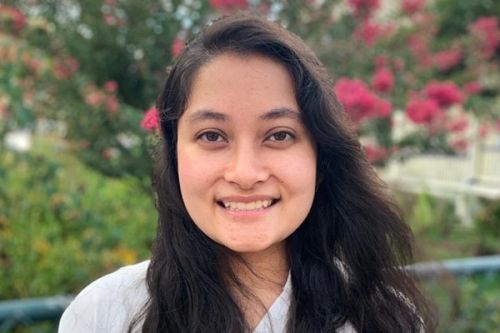
Kabita Sen (A23)
University of Massachusetts, Amherst
Course: International Journalism“I concentrated on representing the 'other' in news stories: When does one generalize in a news story? When does one include granular context? What kind of context is appropriate for news stories? What is 'newsworthy' about a different country and why?”
-
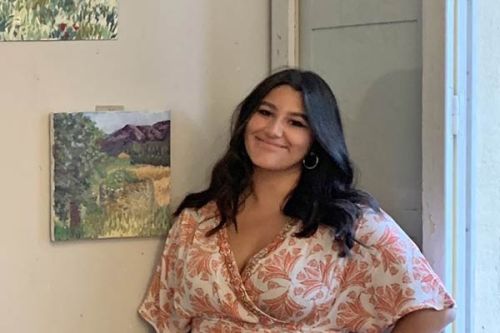
Diana Hidalgo (SF24)
The Marchutz School of Fine Arts Aix-en-Provence, France
Courses: Painting and Drawing; Art Criticism and Aesthetics“I learned how an image should be whole in every stage of its development, and when to retract the brush and let the image be.”
-
-
Education
-
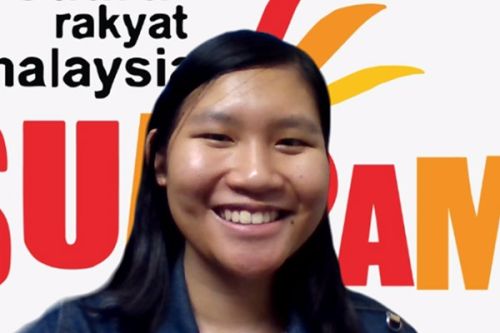
Onysha Boak (SF22)
Suara Rakyat Malaysia (SUARAM)
Intern“I have learned more about presenting data in ways that people can understand and have become better versed in the workings of Malaysian law and government.”
-
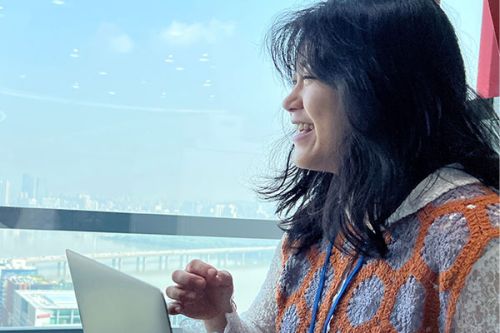
Yoomin Hong (SF26)
PhiloUS
Intern“I wanted students to experience the in-depth learning of math not only as solving a problem and getting the answer right, but also as a time to learn how to logically approach proving a proposition."
-
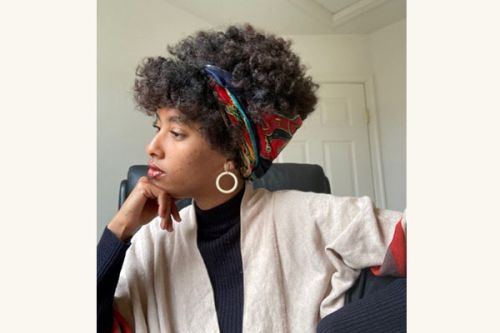
Rediet Worku (A21)
The English Academy (Exam Centre of Ireland, Ltd.)
Course: Cambridge CELTA“The revered name of the course, along with my background at St. John’s, secured two teaching jobs for me ... but the important success for me was the course’s affirmation of my admiration for the English language and the Great Books.”
-
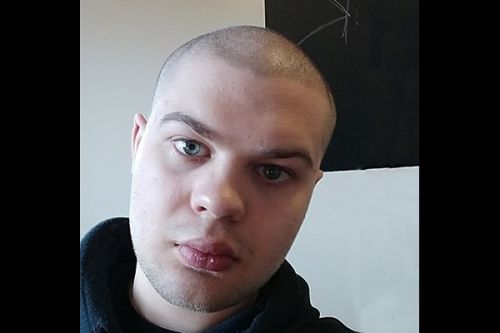
Carl Guttmann (SF24)
Rome Institute of Liberal Arts
Course: Empire and the Soul“RILA in many ways complements the sophomore readings on Rome and therefore is an invaluable asset for any St. John’s student that wishes to pursue a career related to the classics.”
-
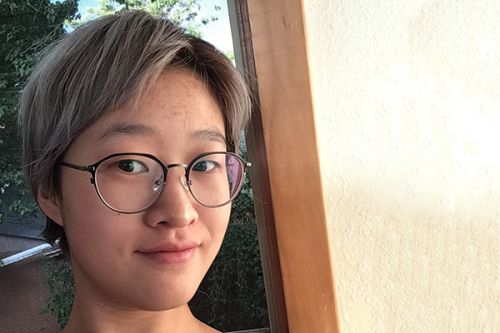
Danpig Long (SF22)
Mentoring Kids Works NM, Santa Fe, New Mexico
Intern“This [was] a wonderful opportunity for me, because I am interested in public education and community services but have not yet made up my mind to become a professional social worker.”
-
-
Psychology
-
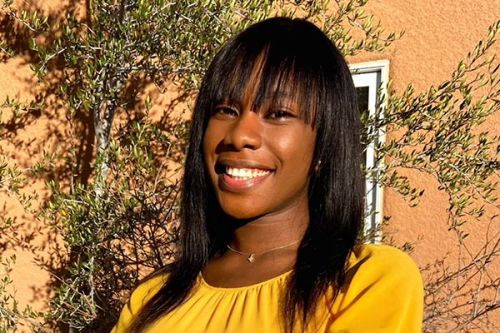
Chinazor Ike-Njoku (SF23)
Harvard University
Course: Introduction to Psychology“I learned a lot about myself, the human brain, general human tendencies, and the power of forming healthy habits.”
-
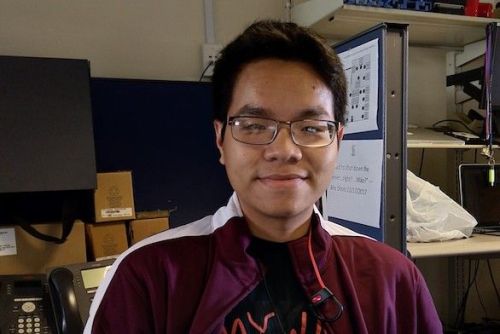
Bao Le (A21)
Texas A&M University’s WorthyLab
Intern“The internship was tremendously helpful in introducing me to modern scientific research and provided me with the new skillset of statistical analysis and computing.”
-
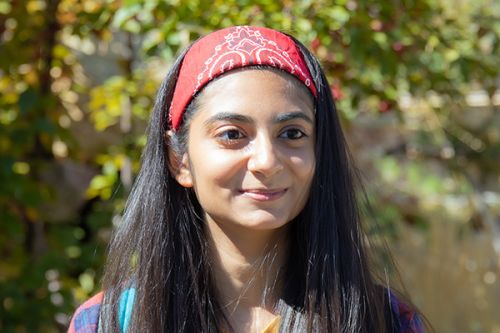
Kashvi Khanna (SF23)
University of Michigan
Course: Social Psychology“I am very interested in the practical interactions between psychology and society as a whole.”
-
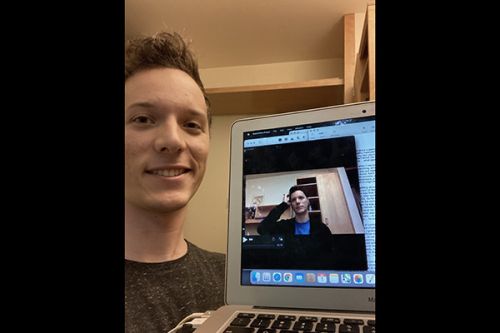
Samuel Berrettini (A21)
Point Park University, Pittsburgh, Pennsylvania
Research Assistant“Dr. Robbins ended up being thrilled with my draft of the proposal, and since I had such a hand in the conception of this study, he put me down as a co-author!”
-
-
Humanities
-
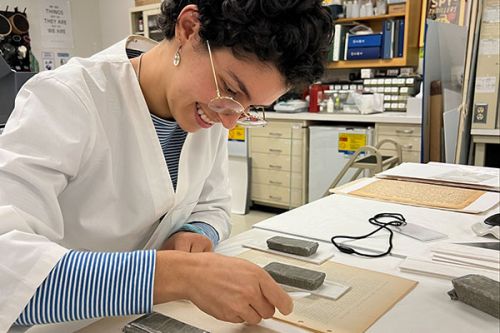
Sophie Frankel (SF25)
Conservation Department, Smithsonian National Museum of American History,
Intern"Working in the paper lab allowed me to apply the precision and thought processes I’ve developed at the St. John’s lab program."
-
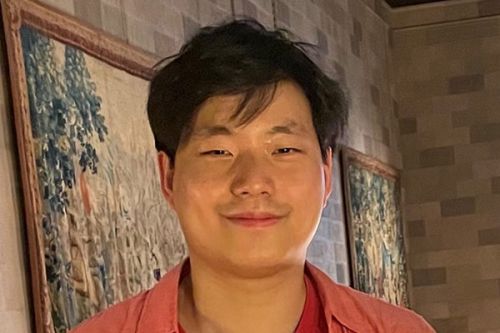
Daniel Han (A22)
University of Notre Dame
Course: Augustine: Life and Sermons“This was a wonderful learning experience, because it combined the St. John’s discussion-based learning style with the focus on a particular topic and author.”
-
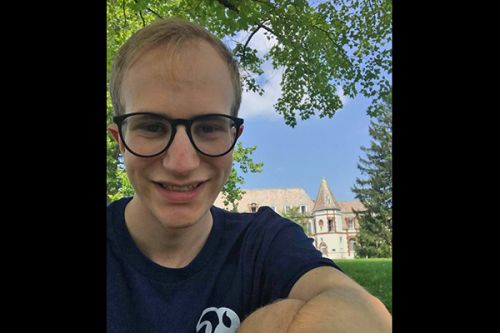
Ogden Berry (SF24)
Middlebury Language Schools
Course: French“Living in language was truly the best part of the experience. I played badminton, attended lectures, and sung in a choir, all in French.”
-
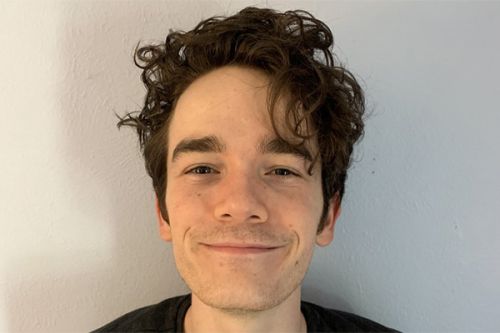
Bennett Scott (SF21)
University of Michigan
Course: Japanese“I was much more prepared than my peers for the ‘wilderness’ of language: going beyond the textbook to try out grammatical constructs in new ways.”
-
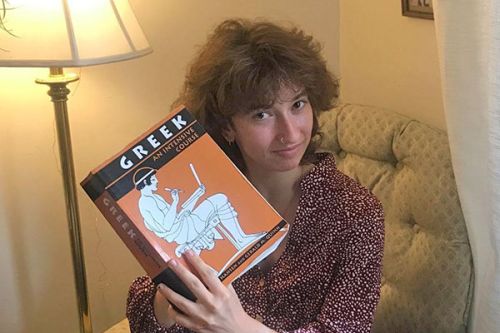
Lysithia Page (A23)
University of California, Berkeley
Course: Greek Workshop“For ten weeks, Greek consumed my life. Never before had I launched such a deep exploration into a single discipline.”
-
Internships and Fellowships
Profile of Zohar Na’aman (SF24)
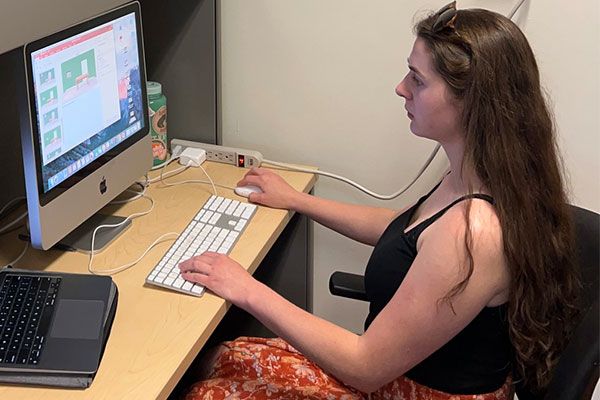
Institution & Field of Study
Language, Development, and Cognition Lab, Colorado University-Boulder
Intern
Experience
Zohar Na’aman (SF24) worked in the Language, Development, and Cognition Lab at Colorado University-Boulder, where she piloted a study on the vowel quality of maternal speech towards children. One of her most significant contributions was the execution of the study’s experiment design. She also conducted data analysis and received certification to work with personally identifiable information (PII) and data from human subjects. “My summer internship at CU-Boulder helped solidify my desire to study linguistics, which I view as the intersection between the humanities and science,” Na’aman says. “My supervisors talked with me frankly about my career path options and gave their insight as university faculty into CU-Boulder’s master’s and PhD programs. Under their guidance, I was given the opportunity to connect with other linguistics professors at CU-Boulder to ask them questions and make important connections within the field. I can now look at my future after St. John’s, especially with respect to graduate school, with anticipation rather than trepidation because I received vital career experience and insight into real research at an academic institution.”
Profile of Tergel Tuvshinjargal (A22)

Institution & Field of Study
University of California, Berkeley
Course: Linear Algebra and Differential Equations
Experience
When Tergel Tuvshinjargal (A22) took a junior-year preceptorial on Dedekind’s essay “The Theory of Numbers,” his mind teemed with questions. He put them aside temporarily, but they later resurfaced when he took an eight-week online UC Berkeley course, Linear Algebra and Differential Equations. “It was quite fascinating to learn the present end of the path which was first laid down by Dedekind,” he says. Though Tuvshinjargal found that the class’s instructional mode diverged quite a bit from the St. John’s Program method, he “was still able to pose the same questions and trace them back to what I thought and discussed at the seminar table.” Dedekind’s theorem of complete induction was applied frequently in the summer course, and for Tuvshinjargal “it was the most fortunate coincidence that I took that preceptorial and witnessed what I learned there in its present state.” He was also grateful to have completed a prerequisite for graduate-level math, a necessary step if he chooses to pursue that path.
Profile of Sandrina Mislitchi (SF22)
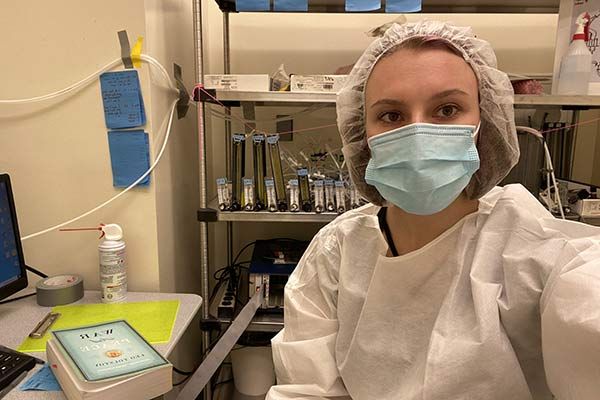
Institution & Position
University of Chicago
Research Assistant
Experience
Sandrina Mislitchi (SF22) performed behavioral and electrophysiological experiments with Sprague Dawley rats at Kay Lab, run by Leslie Kay (SF82), at the University of Chicago’s Institute for Mind and Biology, which studies the neurophysiology of olfactory and limbic systems. “I always wanted to understand how animals perceive their environment,” says Mislitchi, who prepped for her internship by taking online University of Chicago courses in statistics and computer science. St. John’s gave her a wealth of reference points for navigating unfamiliar material, allowing her to adapt to a new and challenging work environment. After graduation, she plans to pursue a career in neuroscience. “I have gained skills—running behavioral experiments, handling lab animals, collecting and analyzing behavioral and electrophysiological data—that will help me on this track,” Mislitchi says. “Attending weekly study groups and lab meetings has enhanced my theoretical knowledge of the nervous system and my ability to efficiently read research papers.”
Employer Testimonial
University of Chicago, Institute of Mind & Biology
Leslie Kay, Professor of Psychology & Mentor
“Sandrina did an excellent job this summer and she shows great promise for the future... Her work this summer has earned her co-authorship of a report that will be presented at the Society for Neuroscience meeting this fall. The graduate student she worked with speaks very highly of her work this summer.”
Profile of Raphael Rose (A22)
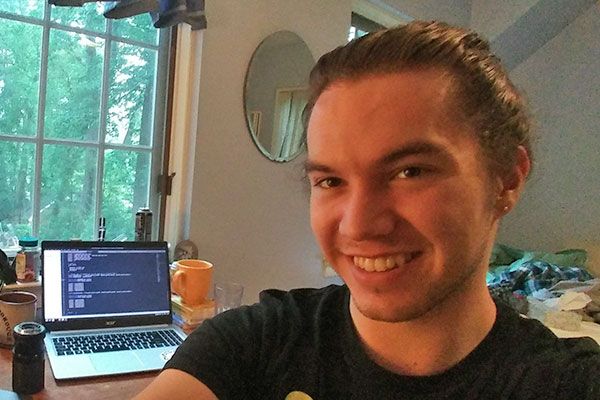
Institution & Position
NASA Goddard Space Flight Center, Gravitational Astrophysics Lab
Intern
Experience
In Raphael Rose’s (A22) internship at NASA Goddard Space Flight Center, he learned linear algebra, numerical approximation, and solutions to Einstein’s field equations. “Once I got the basic concepts down I was ready to code them,” he says. “The primary goal was to approximate a numerical relativity simulation of a black hole into a set of coefficients. The success of the project depended on whether an event horizon could be discerned after reconstruction.” Rose’s mentor was very helpful in breaking down problems, and he and Rose developed a friendly and supportive relationship. Though Rose doesn’t plan to pursue coding in the future, he enjoyed NASA’s workplace environment and became aware of other avenues for his natural facility for working with machines, including quantum optics. “I also learned about a section of the European Space Agency [that] works directly on fundamental theory, which sounds very interesting to study,” he adds.
Profile of Tang Li (SF21)
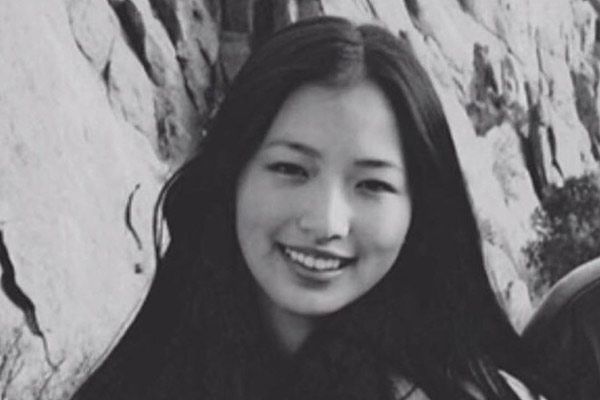
Institution & Position
University of Chicago
Research Assistant
Experience
While interning at the University of Chicago’s Human Behavioral Pharmacology Lab, Tang Li (SF21) investigated the effects on human volunteers of psychoactive drugs, including methamphetamine, MDMA, THC, and LSD. Li wants to work as an addiction therapist, and at the lab she learned about psychopharmacology, performed electroencephalography (EEG) experiments, practiced data analysis, and became familiar with the design of human behavioral pharmacology studies. Reference points from her St. John’s education proved invaluable; she was quick to ask questions when faced with unfamiliar concepts, and she often used writing as a tool to double-check her understanding of those concepts. She also found the principal investigator of the lab, Dr. Harriet de Wit, to be “not only a great scientist but also an excellent mentor.” Li characterizes the internship as an experience of “much personal and professional growth” and made plans to work for Dr. de Wit after the summer ended.
Profile of David Michalove (SF22)
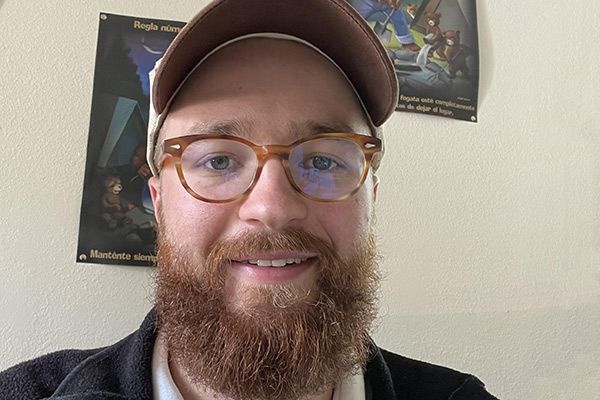
Institution & Field of Study
Unity College, New Gloucester, ME
Course: Environmental GIS
Experience
David Michalove began his summer with the intention of attending the online course Environmental Geographic Information Systems (GIS) from Unity College, an environmental studies school in Maine. A broad tool often used to create maps that tell a story by presenting and analyzing historic data, GIS can be applied to various areas of public land management, including wildfire visualization. Due to some last-minute technicalities regarding prerequisites, however, Michalove ended up taking a class on the foundations of climate change. This course, he says, “required a significant amount of research papers on various climate change facets, as well as various presentations and large cumulative projects” and from his point of view “did a good job teaching how to synthesize scientific research about climate change through scholarly articles and how to place them in their theoretical and conceptual context.” Despite the course content not being exactly what he expected, Michalove was grateful to hone his research skills on a subject that touches many aspects of his life.
Profile of Tong “Cynthia” Wu (A23)
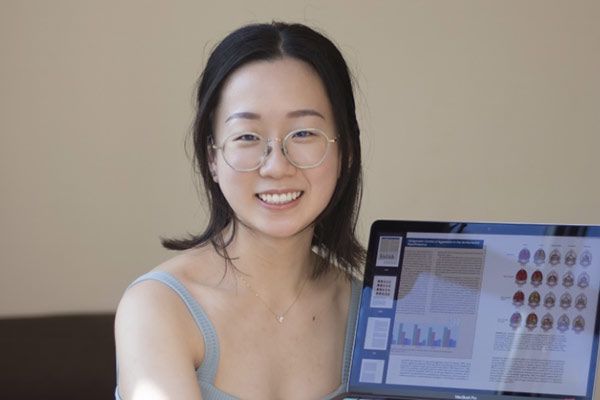
Institution & Field of Study
Johns Hopkins University
Course: Behavioral Endocrinology
Experience
Before enrolling in a Johns Hopkins course on behavioral endocrinology, Tong “Cynthia” Wu (A23) wasn’t sure whether she was more interested in research or theory. She was challenged and excited by the upper-level class, which focused on the interaction of hormones and neurotransmitters, exploring the ways that the endocrine system influences behavior and vice versa. Upon completing it, Wu felt more inclined toward research—specifically in the area of animal behavior. She recommends the Johns Hopkins course to fellow Johnnies as a way to complement the distinctive approach their own college takes to science education. “Sometimes students might not have a full understanding of how these classes are operated in other universities," she says. "Pathways offers a great opportunity to have a glimpse of the world and become familiar with modern research technologies.”
Profile of Sohyeon Jung (SF21)
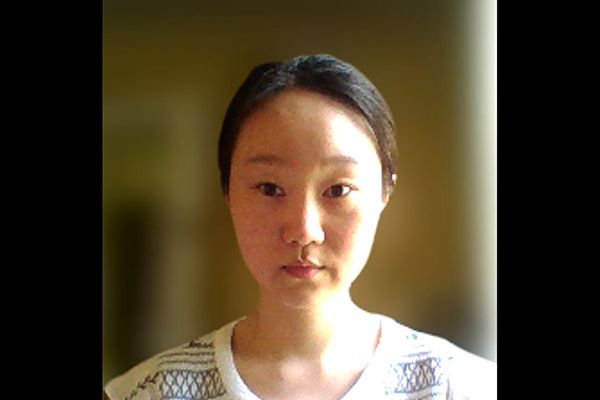
Institution & Field of Study
Central New Mexico College, Albuquerque, NM
Course: Data Science Bootcamp
Experience
Sohyeon Jung (SF21) took an online data science bootcamp course from CNM Ingenuity, a sub-program established by Central New Mexico Community College to help create a skilled workforce. In addition to statistics lectures and exercises, the curriculum entailed six hands-on assignments and a final capstone project. “Since the course is not a math course, in-depth statistics study is not structured,” she says. “Still, my instructor majored in statistics, so I was always able to ask more questions and get responses.” For Jung’s capstone project, she compiled customer data from the private loan company Lending Club to predict customers’ payoff or default status when they requested applications. She and her capstone project teammate presented their final project not only to CNM staff but also to people working in the data science field, including developers and HR managers. “I was very successful in both presenting my project clearly and suggesting meaningful analysis about the Lending Club data,” says Jung.
Profile of Genevieve DeMajistre (A22)

Institution & Position
Smithsonian Environmental Research Center (SERC)
Intern
Experience
Genevieve DeMajistre’s (A22) internship with the Smithsonian Environmental Research Center (SERC) was conducted both online and in person. Her assigned project primarily involved data analysis, and the remote aspect made it easy for her to attend mandatory seminars and optional coding workshops. While physically present, she assisted colleagues with a range of projects, including measuring the heights and widths of specific plant species to calculate biomass across varying conditions during the growing season. DeMajistre’s St. John’s education prepared her well for the experience. “Comprehending the research papers was much like reading the documents from lab,” she says. “After so much critical reading it was easier to identify what was important, what I needed to be able to define, [and] the consequences of what was being said.” She was drawn to the internship for data analysis, but her interest has since broadened to include setting up experiments, constructing their sites, and collecting data.
Profile of Jameson Marshall (A20)
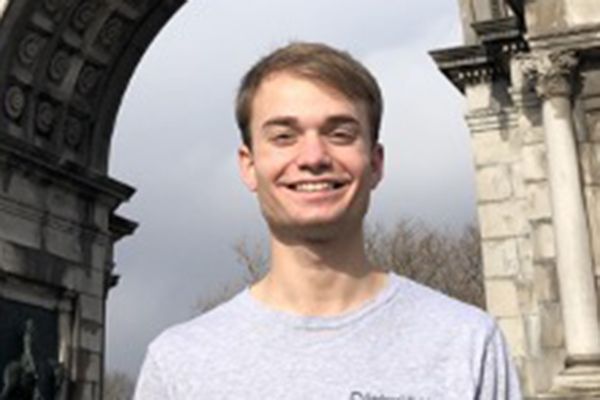
Institution & Position
Office of the Federal Public Defender Service, District of Maryland, Baltimore
Intern
Experience
As an intern at the Maryland District’s Office of the Federal Public Defender, in Baltimore, Jameson Marshall (A20) supported investigators and attorneys in preparing for case trials, a process that included finding, requesting, and analyzing records. Inspired by a desire to balance the scales of inequality faced by those accused of crimes, he was excited to learn about the history of public defense and its place in the U.S. justice system. “Public defenders are at both a monetary and procedural disadvantage to prosecutors,” Marshall says. “The perfect metaphor for this advantage is that in court the prosecution sits nearer to the jury, because the prosecution is meant to represent ‘the people.’ But people are innocent until proven guilty, and people accused of crimes should have access to quality legal defense.” After completing his internship, he went on to apply for investigator and paralegal positions at public defenders offices and legal nonprofits.
Profile of Georgenia Nkwocha (SF22)
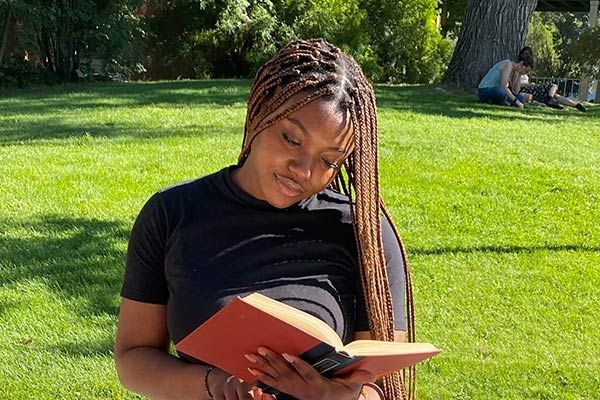
Institution & Field of Study
Harvard University
Course: Introduction to Law and Contemporary Debates
Experience
Georgenia Nkwocha’s (SF22) interest in law stemmed from a childhood in Lagos, Nigeria, where she witnessed abuse of the law by those who were charged with enforcing it; from a young age she knew she wanted to defend victims of crime. Condensing a semester’s worth of material into three weeks, the Harvard course Introduction to Law and Contemporary Debates explored the definition of law and its relationship to morals and society. In addition to reading legal philosophy and opinions on cases, Nkwocha learned how to make oral and written arguments by role-playing justices and judges, with “the same kind meticulousness that the Johnnie Program demands.” The diversity of her fellow attendees, who were from Poland, China, France, India, and the UK (among other countries), brought valuable perspectives on the US legal system. “We were able to learn, argue, and analyze cases strongly due to the very competitive and determined student body and the ever-resilient teaching body,” Nkwocha says.
Profile of James Dormer (A24)
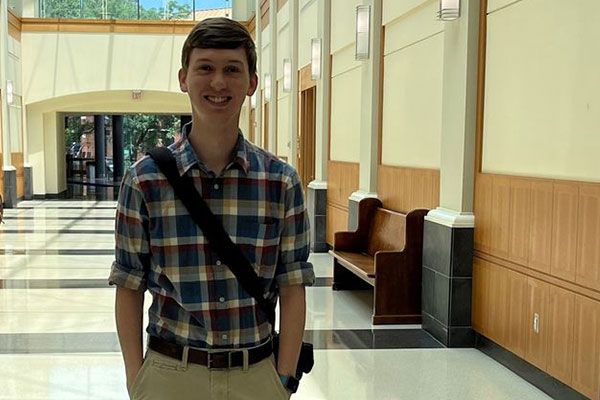
Institution & Field of Study
Anne Arundel County State’s Attorney’s Office for Maryland
Intern
Experience
James Dormer (A24) served as part of the Anne Arundel State’s Attorney’s Office’s support staff, sorting through a wide variety of old cases and deciding what must be kept for the office records—both paper and digital—and what could be disposed of to clear space for future cases. By spending time with these various files, he became familiar with the sort of work a prosecutor puts into preparing a case. He also had the opportunity to sit in on court proceedings, including one criminal bench trial, one civil jury trial, and part of a criminal jury trial, as well as three judge panels and many sentencings, hearings, motions, and pleas. “While most of my time was spent with either juvenile misdemeanors or old adult felonies from over 15 years ago, I was able to work on two cases that were much larger than others,” Dormer says. “These were far more complex and thornier, and took nearly a week each to sort through, scan, and organize for our file room. This is where I could tell that the education I’ve received at St. John’s served me well: I needed to quickly read several thousand pages of documents and comprehend not only what they were saying, but how they fit into the bigger picture of the case as a whole. And St. John’s has taught me how to read things with a careful eye without sacrificing speed. It was not unlike a reading for lab or math class, where I’d be getting only a part of the whole answer and I need to determine how it connects to previous readings, as well as predict what could follow from it.”
Profile of Zhansaya Kuatzhan (SF22)
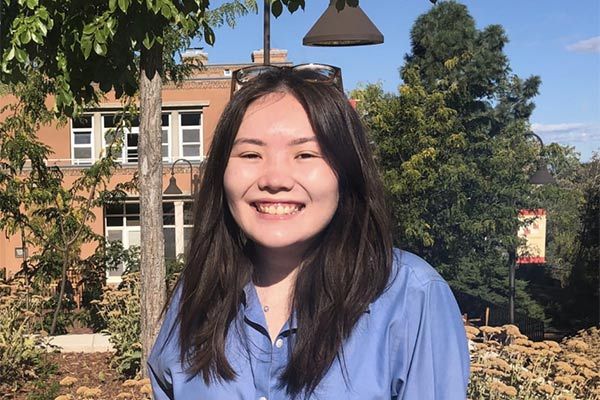
Institution & Position
Hinkle Shanor LLP, Santa Fe, NM
Litigation Assistant
Experience
Zhansaya Kuatzhan (SF22) completed an internship New Mexico firm Hinkle Shanor LLP, which has offices in Santa Fe, Albuquerque, and Roswell and covers a range of legal subsets, from natural resource to business law. Over the course of the summer, she worked on a divorce case and a lawsuit involving a helicopter company, as well as engaging in small legal research projects, writing numerous summaries and memos, creating PowerPoint presentations for hearings, and even drafting a statement of facts to be read by the New Mexico Supreme Court. “Thanks to the level of independence one develops at [St. John’s], I was able to manage my time well and complete my assignments on time,” says Kuatzhan, who views her experience at Hinkle Shanor as “an essential part of my professional growth and future career in law” and is “excited by the prospect of working in similar settings after I graduate.”
Profile of Tessa Wild (A23)
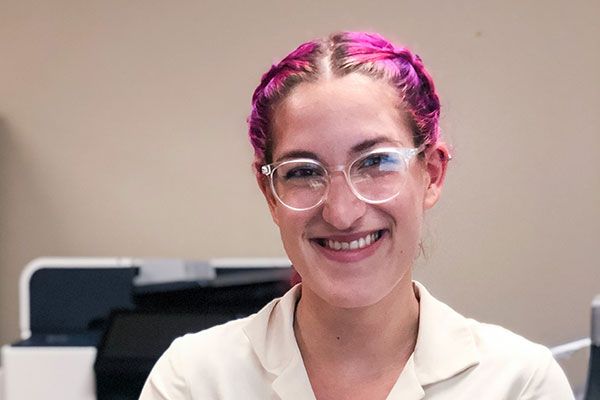
Institution & Position
Maryland Office of Public Defense, Annapolis, MD
Intern
Experience
For almost two months Tessa Wild (A23) interned in person at the Maryland Office of Public Defense in Annapolis, assisting a team of lawyers with preparing files, interviewing clients and witnesses, attending trials and taking notes, and handling administrative legal tasks, such as updating data. She describes the lawyers she worked with as “considerate, driven, and highly ethical people, [who] were always jovial and kind despite a difficult caseload” and says that the internship solidified her academic and career goals. “I can really see myself working in law in some capacity or another, and I can only imagine that law school, though challenging, will present the same opportunities for examining the fascinating and relevant issues which I was able to examine during this internship,” says Wild. She also feels confident that the personal connections she made over the summer will yield excellent references in the future.
Profile of Conor Flynn (A22)
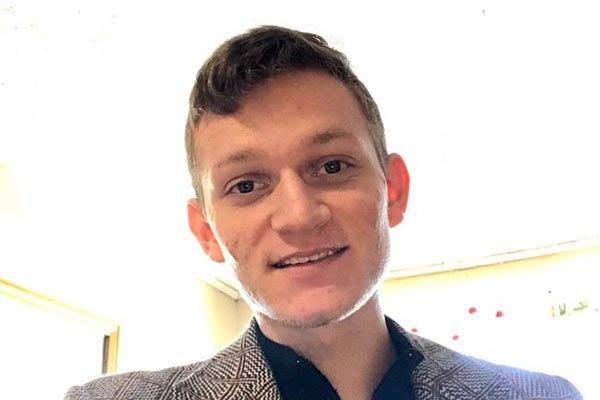
Institution & Position
International Rescue Committee, Baltimore, MD
Intern
Experience
Conor Flynn (A22) served as a remote intern for the International Rescue Committee’s (IRC) immigration legal services program, he worked with the U.S. Department of Justice–accredited representatives to help prepare citizenship applications for refugees from countries including Syria, Thailand, Myanmar, Ethiopia, and Sudan. Flynn was particularly inspired by a staff meeting featuring a segment on adult education (an important component of resettling displaced people), in which a colleague noted that the best approach to adult education is one of “co-participation.” Flynn describes the term as “a non-hierarchical expounding or ‘teaching’ of information,” adding, “This is remarkably similar to the style of our own learning at St. John’s.” The connection made him appreciate the richness not only of the St. John’s Program but also of social and humanitarian work in general. “I have realized that pursuing a role in the humanitarian sector is a viable option for me,” he says. “I will continue to search out opportunities to see if I can contribute to a kinder world.”
Profile of Sylvaine Bucher (SF21)
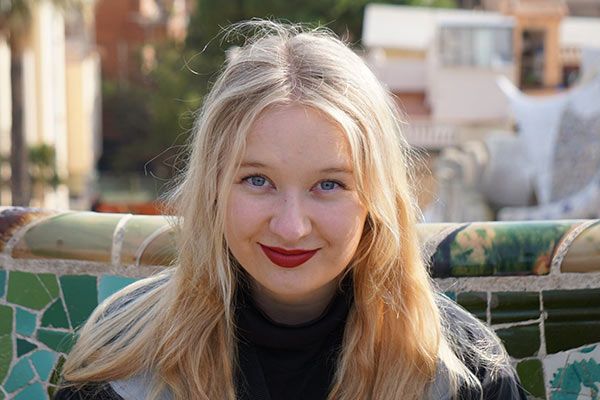
Institution & Position
The Borgen Project, Tacoma, WA
Intern
Experience
Sylvaine Bucher (SF21) served as a remote HR intern at The Borgen Project, a nonprofit working to end poverty and hunger by educating and mobilizing citizens to communicate with their government and by collaborating with U.S. Congressional leaders to garner political support for global food security, maternal and neonatal health, and access to clean water and sanitation. Bucher built community awareness through local advocacy, contacted her political leaders biweekly, and developed a personal fundraising campaign, all while learning the basics of the HR, from management, recruiting, and selection to staff training and development. “Doing what we are passionate about, dedicating our work to the common good, learning new skills, reflecting on the choices we make about our careers, finding out about our character strengths and weaknesses, applying our values and virtues to real work—this was my internship,” says Bucher, who began a master’s degree in public administration after the summer ended.
Profile of Ray Matsumoto (A22)
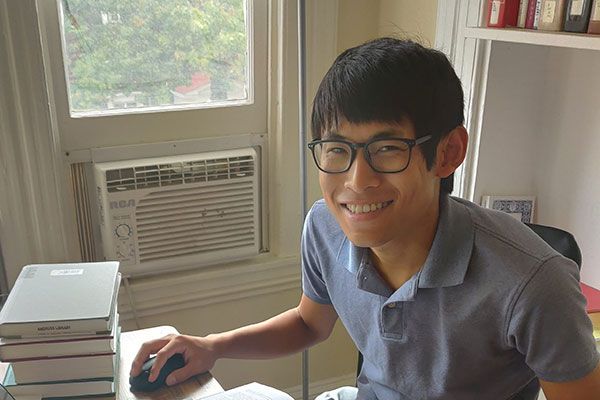
Institution & Field of Study
Pacific Atrocities Education, San Francisco, California
Experience
Ray Matsumoto (A22) interned remotely at Pacific Atrocities Education in San Francisco, where he co-authored a publication entitled “A Clash of Empires at Pearl Harbor: How Nanshinron, Japanese Nationalism and Militarism Exacerbated the Imperialization of Asia.” Born and raised in Japan by Japanese parents, Matsumoto attended an international school where he learned about World War II, but that subject, he says, “is absent in most Japanese curriculums.” He was especially curious about the lives of Japanese soldiers, and he used primary and secondary texts to research the history of modern Japan. “I treated each text similarly to how I would for a class at St. John’s,” Matsumoto says. “Questions concerning cause and effect were most central in the process, [and] I would wait to read different texts to form a solid view of a historical event or figure.” Collaborating long-distance didn’t stop him from honing practical skills, and the organization’s historian assisted with everything from research and writing to formatting and notation.
Profile of Levan Kiladze (A22)
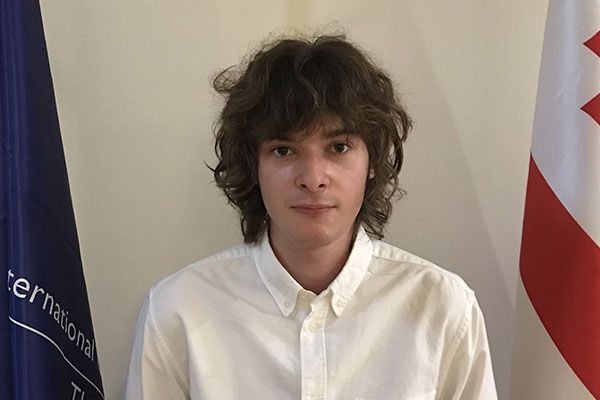
Institution & Position
International Organization for Migration (IOM), Tbilisi, Georgia
Intern
Experience
Levan Kiladze’s (A22) internship at the International Organization for Migration (IOM), Tbilisi, Georgia, entailed working with both the organization’s media and communications officer and with EMERGE, an anti-xenophobia project promoting migrants’ rights. For the former, he helped create press releases as well informational material to raise awareness and promote activities around World Anti-Trafficking Day. For the latter, he and EMERGE’s project manager interviewed members of each of IOM’s departments to learn about recent projects in border management, human trafficking and smuggling, labor migration, migrant protection, and health. Kiladze also updated the organization’s website, designed its biannual newsletter, and prepped, analyzed, and archived training materials. Upon completing his internship, he says, “I am more confident that after getting a master’s degree in international relations, humanitarian action, or social sciences, I would like to work with an international organization as a consultant, a researcher, or a project manager.”
Profile of Leah March (SF23)
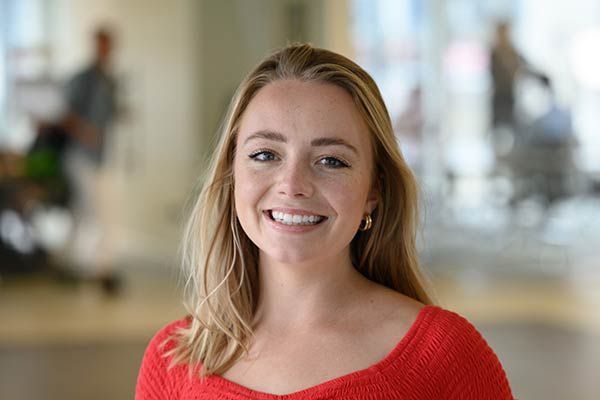
Institution & Field of Study
London School of Economics
Course: The Wealth (and Poverty) of Nations: Global Economic Development Past and Present
Experience
Leah March (SF23) chose to take a class at the London School of Economics (LSE) not only for the institution’s international reputation, but also because of the wealth of economic history in the city itself; while there, she visited nearly every museum. The course addressed the origins and impact of the Industrial Revolution, covering a wide swath of global economic history from the Neolithic period to the technological revolution, as well as speculation about the impact of AI and climate change on the future of labor markets. St. John’s prepared March well for the curriculum and gave her extra appreciation for the subject, because “at least part of the Industrial Revolution can be credited to the ideas of thinkers I have encountered in the St. John’s classroom.” She also became adept at analyzing different historical arguments and evaluating evidence. The LSE course, she says, “absolutely confirmed my interest in history and economics,” while providing clarity on her next steps.
Profile of Rei Osmani (A22)
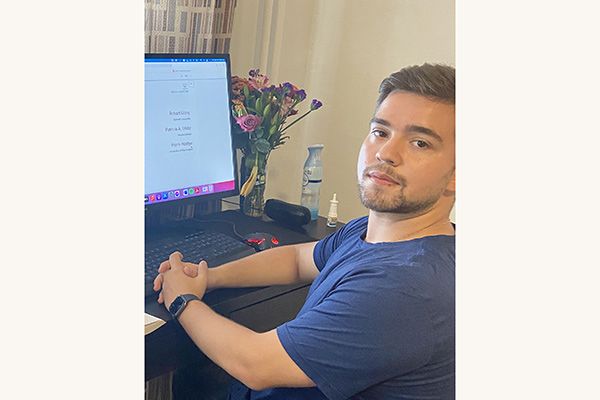
Institution & Field of Study
University of California, Berkeley
Course: Financial Accounting
Experience
Rei Osmani’s (A22) UC Berkeley online class in accounting was populated by students of varying ages from different walks of life, some of whom had been in the workforce for a while. This diversity gave Osmani a new lens through which to view accounting. Though he enjoyed the technical aspects of the subject, he found himself more inclined toward the managerial. With its focus on textbook learning and lecture formats, the class represented a departure from the discussion-based Johnnie approach to education, and quick adaption was a challenge. “Nonetheless,” he says, “at St. John’s we are encouraged to keep an open mind and analyze and systemize processes. Therefore, things became much easier to comprehend later on.” He’d recommend the program, or something similar, to fellow students who are “trying to advance in the business world or get a better perspective on how that environment will be.”
Profile of Esteban (Joaquin) Gamarra Jordan (SF21)
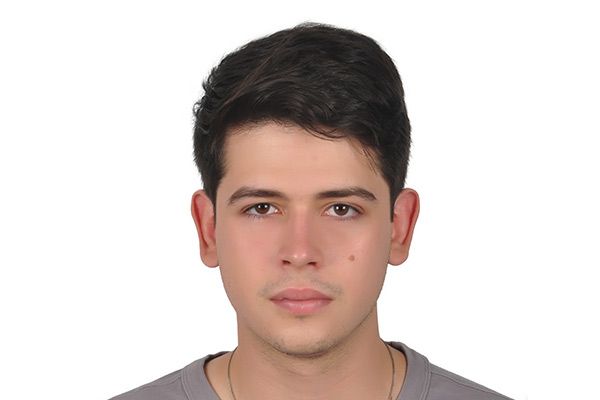
Institution & Field of Study
Bocconi University, Milan, Italy
Course: Digital Marketing
Experience
Esteban (Joaquin) Gamarra Jordan (SF21) took a four-week online introduction to digital marketing at Bocconi University, where he learned about fundamental concepts including customer journey, customer value, and consumer behavior, as well as branding, micro-targeting, and re-targeting, while also becoming familiar with digital platform channels. As a Johnnie, he felt confident in his ability to tackle the material presented, and the course’s online aspect caused minimal friction to the learning process. “Before finishing my four years at St. John’s, I was still unsure about the kind of professional path I wanted to take,” he says, adding that an interest in marketing led him to “test the waters” at the Bocconi class. Fortunately, it “ended up being a perfect fit.”
Profile of Cora Clark (A21)
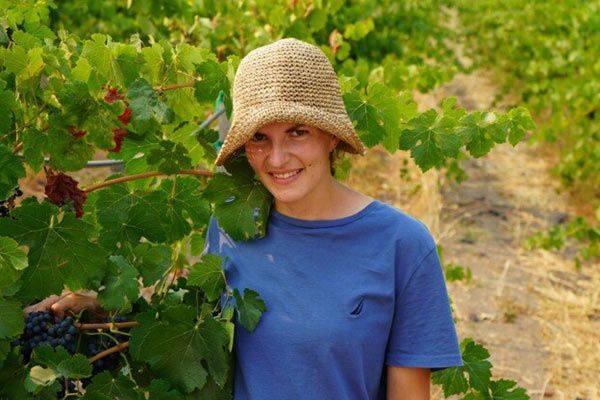
Institution & Position
Duckhorn Portfolio, St. Helena, California
Intern
Experience
In Cora Clark’s (A23) internship in the viticulture department at the Napa Valley wine company Duckhorn Portfolio, she liaised between winemakers and the vineyards, where she collected data and assessed the state of vines for harvest and replanting. “Everything I did was with ‘ear and eye,’ without the use of aerial technology or big industry machinery,” she says. “Napa Valley wineries believe that big machinery and technological short-cuts ruin the delicacy of the grapes and cut corners on the precision and care that should go into making fine wine.” Clark’s aim for the summer was to pursue her interest in agriculture and discover how it can fit into a career path—and she did exactly that, while also “witness[ing] firsthand the important place that hands-on work and observation plays in the agricultural process of a fine product,” she says. Clark ultimately realized, however, that she doesn’t want to pursue winemaking and instead plans to attend graduate school.
Profile of Caleb Briggs (A25)
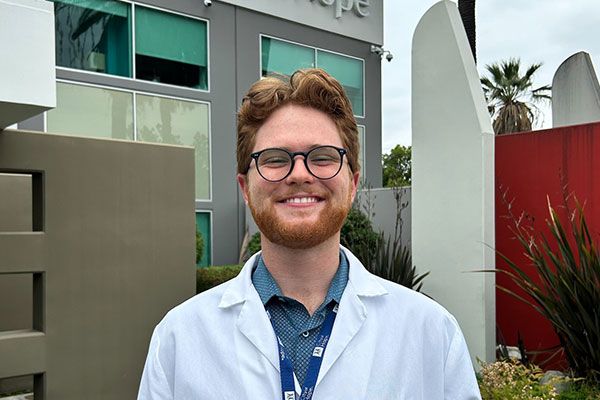
Institution & Field of Study
T-Cell Therapeutics Research Laboratory at the Beckman Research Institute of City of Hope
Intern
Experience
Caleb Briggs (A25) worked in the T-Cell Therapeutics Research Laboratories on experiments designed to study immunotherapy in the treatment of cancer, assisting in a project aimed at understanding how natural killer cells are suppressed in a patient with acute lymphoblastic leukemia. Throughout his internship he also learned basic molecular and biology laboratory skills including human cell culture, qPCR, mouse tissue isolation and processing, and isolation of mononuclear cells from peripheral blood of healthy donors and patients. “Learning how to read well and how to ask the right questions was a great help when I was reading multiple scientific papers a week and had no prior knowledge of medical science,” Briggs says. “Dealing with gray areas and ethical challenges was also easier thanks to previous experiences of wrestling with difficult questions in seminar and tutorials. My mentors were consistently impressed with my ability to retain information from reading and from conversation. I was encouraged to continue to think critically and logically all summer and now feel more excited and prepared to enter the field of medicine.”
Profile of Apurva Sharma (A23)

Institution & Position
Nepal Mediciti Hospital, Kathmandu, Nepal
Intern
Experience
Apurva Sharma (A23) interned under Dr. Prakash Paudel at one of Nepal’s leading hospitals for neuroscience, where she shadowed physicians in consultations and daily rounds, entered data during out-patient consultancies, worked with other interns to create discharge reports, and attended weekly presentations, among other tasks. Her multidisciplinary St. John’s education inspired her to look at scientific topics from different points of view. “I kept being drawn to ask questions regarding the mind through a more spiritual lens and comparing that to the doctors’ technical idea of the brain,” she says. “Engaging in this sort of speculative dialogue only made me more inquisitive about how the human mind works.” Viewing CT scans and MRIs, Sharma says, “felt strange for some reason. Perhaps because I’ve been engaging in the idea of the mind as a metaphysical one.” She found the internship experience “transformative in all respects,” and it it reinforced her desire to work in neuroscience while providing a glimpse into the day-to-day life of health professionals.
Profile of Dylan Michael (SF22)
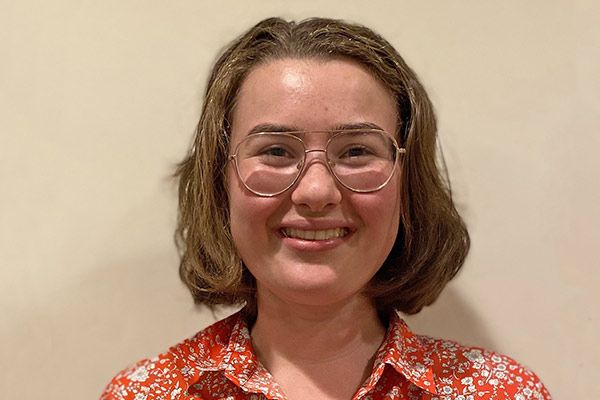
Institution & Position
Magee Women's Research Institute, Pittsburgh, PA
Research Assistant
Experience
Dylan Michael (SF22) spent the summer in a hybrid internship at the Magee Women’s Research Center (MWRI) serving as a research assistant in the Rohan Lab, which develops drug-delivery mechanisms. Because she wasn’t in the lab every day, Michael spent extra time learning how to perform lab functions and assisting with her supervisors’ experiments. During her last two weeks, however, she was able to run a histology experiment almost completely on her own. While gaining lab skills and an greater understanding of research, she also became familiar with the process of reading, understanding, and using critical thinking to synthesize scientific papers. Michael, who ultimately intends to study medicine, credits St. John’s for her ability to express thoughts clearly and concisely. “Being part of a research lab is more than just conducting the actual research; it is ensuring that that research is valuable, will serve a purpose, and can be done logistically,” she says.
Profile of Katherine Quinn (A22)
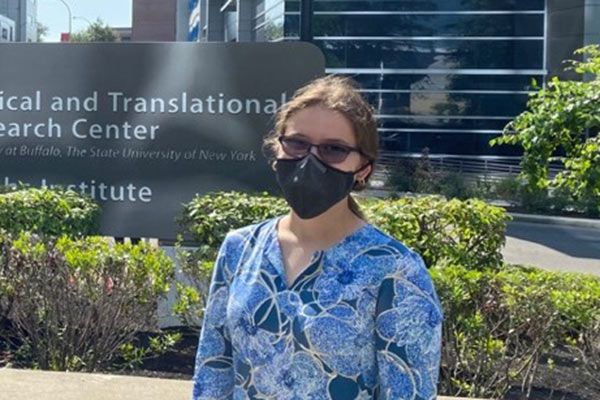
Institution & Position
Jacobs School of Medicine and Biology, SUNY Buffalo
Intern
Experience
In Katherine Quinn’s (A22) internship with pediatric rheumatologist Dr. James Jarvis (A75) at SUNY Buffalo’s Jacobs School of Medicine, she explored possible factors that contribute to higher rates of rheumatoid diseases among Native American adults. In delving into academic research that charted effects of stress, adverse childhood experiences, and less quantifiable factors (like racism) on that population, she says, “My St. John’s experience helped me. I was familiar with parsing technical jargon from fields I know little about and identifying what new concepts were central to the arguments outlined, [and] I was comfortable with the idea that I did not need to fully understand everything I was reading.” She enjoyed exploring the relationships between biological and social factors, and learned that she prefers a work mode that strikes a balance between supervision and the freedom to solve problems in ways that make most sense to her. “I could see myself working in a similar setting again,” says Quinn.
Profile of Sydney Whitten (SF23)
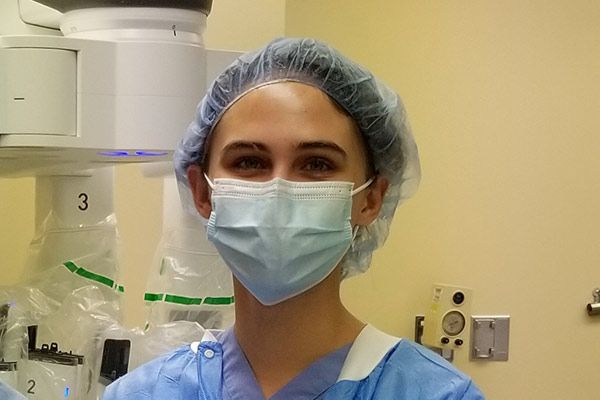
Institution & Position
Ascension St. Vincent Hospital, Indianapolis, Indiana
Intern
Experience
Sydney Whitten (SF23) had long considered a career in medicine, and during her privately arranged, individualized internship at Ascension St. Vincent Medical Group, she shadowed seven different doctors to gain a close-up view of the life of healthcare professionals. “I was able to witness the hard hours, difficult decisions, and life-changing work these wonderful individuals do every day,” she says. “I spent time in the office working with patients, as well as attending surgeries in the operating room, rounding on patients, taking call, and following on consults.” She also saw doctors rush from patient to patient and spend hours double-checking insurance billing codes. “Nothing could have prepared me for the exhaustion and frustration I faced every day,” says Whitten, who still maintains a passion for healthcare but realized that practicing medicine is not for her. Because she gained the practical knowledge she sought, she considers her summer internship “an absolute success.”
Profile of Lainey Rendelman (A26)
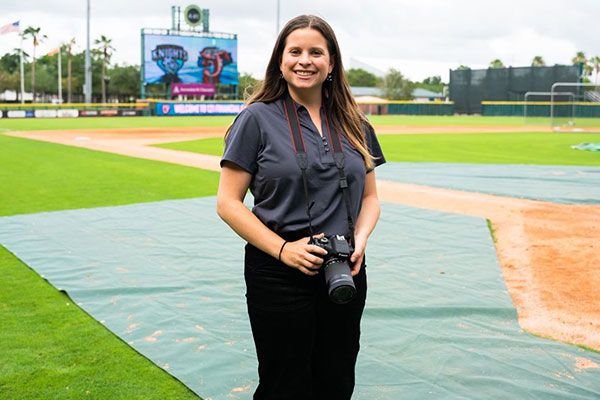
Institution & Field of Study
Jacksonville Jumbo Shrimp Baseball Club
Intern
Experience
As a broadcast/media relations intern with the Jacksonville Jumbo Shrimp Baseball Club in northeast Florida, Lainey Rendelman (A26) created posts for the team’s social media accounts; served as the team’s broadcast producer on their flagship radio station; and contributed to the Jumbo Shrimp Network with interviews, reports, and player storylines. She also assisted with all media relations efforts, including accommodating interview requests, administering media credentials, and creating and distributing game day materials. “One of the most frequently asked questions I receive pertaining to my education is, ‘Why would you go to a school like St. John’s if you want to work in sports broadcasting?’ Rendelman says. “My answer to this question remains the same: St. John’s is teaching me through seminar how to be an effective communicator. This skill is pertinent when it comes to hosting the pregame radio show and conducting player interviews.”
Profile of Kasparas Adomaitis (A23)
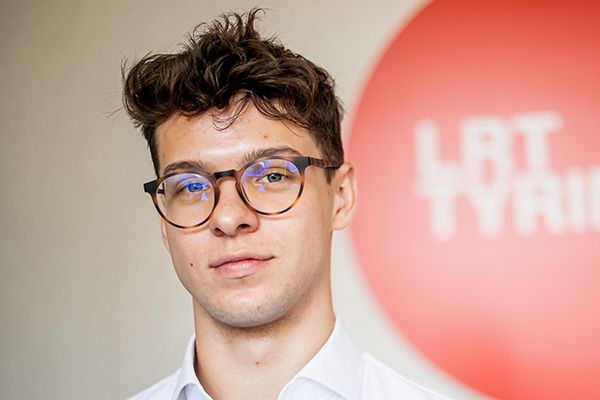
Institution & Position
Lithuanian Radio and Television, Investigative Journalism Division
Intern
Experience
A concern for political transparency and freedom of the press in his home country led Kasparas Adomaitis (A23) to intern at the investigative journalism division of Lithuanian National Radio and Television (LRT). Working within a team of five, he helped conduct, write, and present a range of investigations, one of which involved perusing the state archives to uncover how certain Lithuanian state property was privatized after the fall of the Soviet Union. For another, Adomaitis made English translations of ongoing investigations to be shared with foreign media outlets. “My most memorable project was investigating the migration networks of people from the Middle East through Belarus into Lithuania,” he says. “I interviewed Kurdish migrants who had crossed the Lithuanian border into detention centers.” He appreciated the welcoming support his of his mentors and notes that “having always found it difficult to find a career path that would genuinely interest me, this internship made me realize that I could pursue journalism and be good at it.”
Profile of Miselo Matipa (SF22)
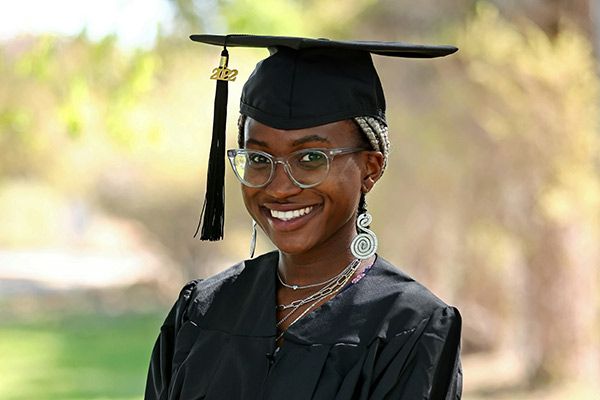
Institution & Field of Study
Boston University
Course: Storytelling for Film and Television
Experience
Miselo Matipa (SF22) took the Boston University course Storytelling for Film and Television, a six-week intensive introduction to the fundamentals of screenwriting. She intends to pursue an MFA in screenwriting and chose BU for its status as one of the nation’s top 25 film schools. The class was attended mostly virtually, but Matipa was the sole in-person student, a format that entailed daily Covid symptoms screenings and twice-weekly testing. “I opted in for this because I wanted to be able to talk to my professor freely before and after class, the way we often do at St. John’s,” she says. Each student wrote two short screenplays, a process in which the importance of critique, peer review, and revision was stressed. By analyzing storytelling approaches of popular movies as they progressed from script to screen, Matipa learned to recognize which narrative elements work and which don’t. “I see the practical insights gained during the course as being beneficial to me for a very long time, [and] I gained a lot of industry information from the class materials,” she says.
Profile of Kabita Sen (A23)
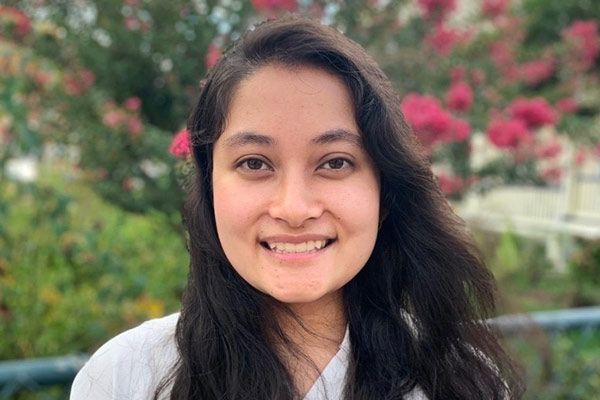
Institution & Field of Study
University of Massachusetts, Amherst
Course: International Journalism
Experience
Kabita Sen’s (A23) 13-week online course at University of Massachusetts, Amherst focused on three aspects of international journalism: international relations, terrorism, and war reporting. As Sen explored complex relationships between individuals, institutions, and social phenomena, she came to understand the responsibility of journalists to “[fit] new events into familiar frames of reference—an endeavor fraught with practical and ethical dilemmas.” She focused especially on the need for international journalists to “explain the ‘other’ to their readers through comprehensible, interesting stories without essentializing the ‘other’ and employing facile clichés.” Through readings, class discussions, and assignments, she analyzed the forces that shape discrimination in media coverage “based on factors such as race, ethnicity, language, religion, class, ability, nationality, or gender.” Sen’s final research paper presented an overview of the current state of journalism in her home country, Nepal.
Profile of Diana Hidalgo (SF24)
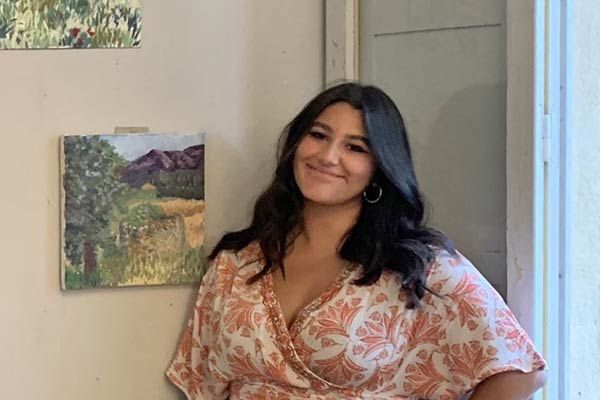
Institution & Field of Study
The Marchutz School of Fine Arts Aix-en-Provence, France
Courses: Painting and Drawing; Art Criticism and Aesthetics
Experience
While attending the Marchutz School of Fine Arts’ six-week immersion program in French art and culture, Diana Hidalgo (SF24) lived in a homestay, attended seminar-style classes, took sketching and painting trips, engaged in field studies, and attended classes in drawing and painting as well as art history and aesthetics—all while taking Covid safety precautions. In analyzing work by Van Gogh, Degas, and Cézanne, Hidalgo learned how these great artists viewed the world and how she, in turn, views it herself. As she loosened her “fixed mindset of perfection and guidelines,” she says, “I developed a better sense of following my instincts and painting what I saw instead of what I thought. Marchutz taught me that I am a confident and independent woman and that I have a voice and a purpose in an academic world,” she continues. “The city, curriculum, and people that surrounded me helped me fall in love with myself and the learning that I was doing.”
Profile of Onysha Boak (SF22)
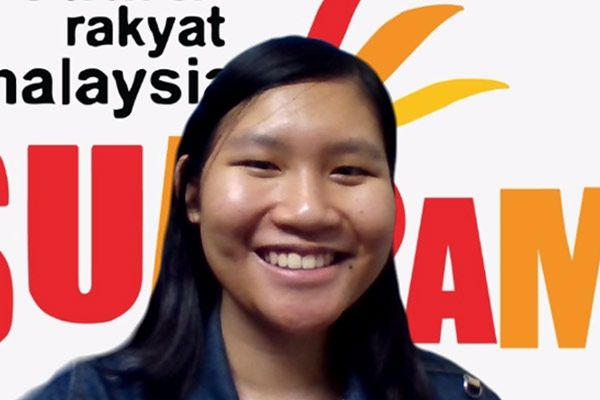
Institution & Position
Suara Rakyat Malaysia (SUARAM)
Intern
Experience
Onysha Boak (SF22) completed an online internship with human rights organization Suara Rakyat Malaysia (SUARAM), whose name means “voice of the Malaysian people.” SURAM focuses on freedom of expression, indigenous and LGBTQ rights, and police abuse of power. With her mentor, SUARAM’s Right to Justice program coordinator, Boak worked on refining a data sheet that detailed police custody deaths, a process the involved searching through official reports and government documents for information indicating abuse of power or systemic cover-ups. “We were also approached by Malaysiakini, a local news website that wanted to publish a special report based on our work,” says Boak. “In the final few weeks of my internship, I wrote about thirty short profiles on death in custody cases to be included in Malaysiakini’s report.” She appreciated SUARAM’s effective approach to advocacy, which encompassed both legislation and public education. The internship opened up career possibilities for her, not only in advocacy but also in fields like journalism.
Profile of Yoomin Hong (SF26)
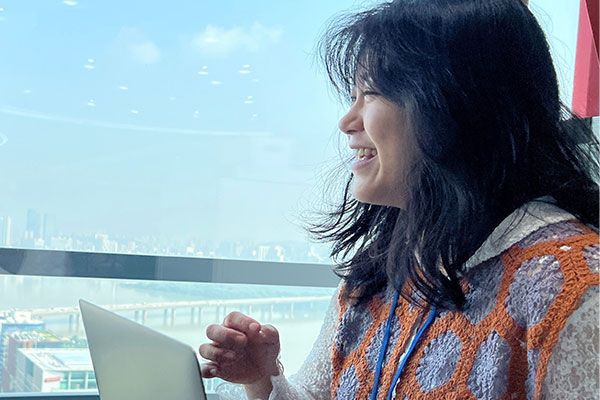
Institution & Field of Study
PhiloUS
Intern
Experience
During her product management internship at PHILOUS, a private education company in South Korea, Yoomin Hong (SF26) designed and managed programs and curriculums for elementary and middle-school students. She also engaged in marketing efforts and even served as an instructor herself, piloting a St. John’s-inspired experimental education method where she combined Euclid’s Elements with a public-school math curriculum.“I wanted students to experience the in-depth learning of math not only as solving a problem and getting the answer right, but also as a time to learn how to logically approach proving a proposition,” Hong says. “I also had the opportunity to actually teach two students with the curriculum I made. Though it was only four classes, the feedback I got from students was rewarding, as they expressed how they were able to learn how to ask ‘Why?’ through the program.”
Profile of Rediet Worku (A21)
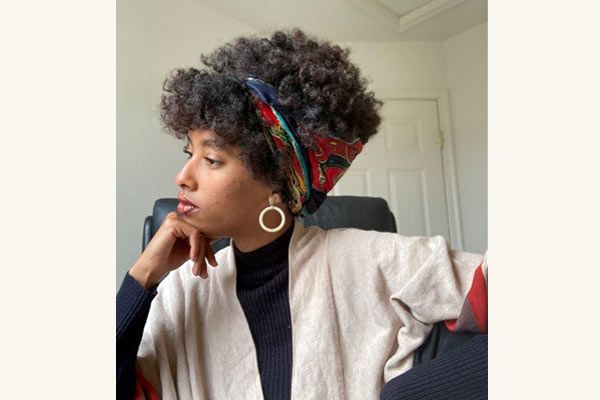
Institution & Field of Study
The English Academy (Exam Centre of Ireland, Ltd.)
Course: Cambridge CELTA
Experience
Rediet Worku (A21) took an online course in CELTA, Cambridge University’s ESL program, which, she says, “differed greatly from my experience at St. John’s College.” Worku found the program was more rigorous in terms of quantity of material than in content, and the right-wrong teaching format was difficult for assessing student progress. To keep focused, Worku says, “I read the textbooks used for instruction as I would with Montaigne or Augustine, looking for patterns within the grammar or fill-in-the-blank questions that would make delivery of the lessons more interesting.” As a result of the course, Worku’s relationship with English grammar evolved from implicit to explicit: “I could, for the first time, use it consciously and alter it as I pleased.” The class also reinforced her commitment to the pursuit of open-ended discourse. “I now know, with evidence, that the teaching I long to do in life is associated with the guidance of students to the nature of things,” she says.
Profile of Carl Guttmann (SF24)

Institution & Field of Study
Rome Institute of Liberal Arts
Course: Empire and the Soul
Experience
For Carl Guttmann, the Rome Institute of Liberal Arts (RILA) program aligned well with personal and career interests. The course he took, Empire and the Soul, comprised history, mythology, theology, and philosophy (as well as work by some post-classical authors) to address questions he broadly summarizes as: “What is the relationship between the individual and the group and how is it influenced by different forms of government and societal structures?” Rome itself provided “a wealth of Classical, Hellenistic, Renaissance, and Baroque art and architecture,” and by collaborating with non-Johnnies, Guttmann was “able to get an idea of how the Great Books are taught at more ‘normal’ universities but also how students that, for the most, part pursue a different major integrate them within their respective course of study on an intellectual level.” He also enjoyed getting to know people with whom he might end up in same professional field: “Call it networking if you must”.
Profile of Danpig Long (SF22)
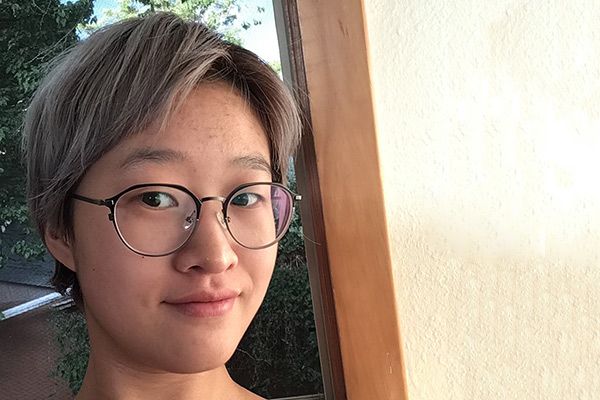
Institution & Position
Mentoring Kids Works NM, Santa Fe, New Mexico
Intern
Experience
As one of twelve summer literacy interns at the nonprofit Mentoring Kids Works NM, Danpig Long (SF22) worked to design a mentoring club module as part of the organization’s high school internship program, which encourages teens to pursue careers in public education. Throughout the process, Long says she was “constantly being pushed to look past the lovely scenario of reading with children to find the root problem that may hinder their study.” She discovered that literacy is not an issue separate from other aspects of society, and promoting it requires a holistic focus on a community, including the daily concerns of indigenous people, governmental policies, and the relationship between tradition and modernization. Mentors must give constant academic and emotional support to children, says Long, adding, “Everyone who wants to work for their community should be prepared to deal with human beings with respect and understanding, which includes countless selfless collaborations and genuine conversations.”
Profile of Chinazor Ike-Njoku (SF23)

Institution & Field of Study
Harvard University
Course: Introduction to Psychology
Experience
Chinazor Ike-Njoku’s (SF23) desire to pursue a career in psychology was reinforced when she took a seven-week intensive course at Harvard, which has one of the nation’s top programs. Introduction to Psychology led by neuropsychology professor Dr. Elizabeth Phelps, encompassed the history of the discipline and current studies on a range of subfields. Ike-Njoku has always had a passion for mental health. “Having grown up and lived with several people who suffer(ed) from mental health disorders, I developed an interest in how the brain functions and how certain attitudes and behaviors can alter its functioning for better or worse,” she says. In addition to convening twice a week on Zoom, she and her classmates participated in ethical psychological research studies. Ike-Njoku felt well-prepared by her St. John’s education to tackle the course’s challenges and noted: “My professor commended my critical-thinking skills and my ability to proceed from fact to judgment. I could not have imagined a better summer.”
Profile of Bao Le (A21)

Institution & Position
Texas A&M University’s WorthyLab
Intern
Experience
Bao Le (A21) interned at Texas A&M’s Worthy Lab, which focuses on cognition and cognitive neuroscience, using mathematical models to explore the processes of learning and decision making. Because it was Le’s first experience with onsite research in psychology and neuroscience, he was introduced to lots of unfamiliar material, including the H (Hybrid) programming language, mathematical behavior modeling, and statistical analysis of experimental data. “I overcame these obstacles within a short time thanks to the experience of acquainting myself with new and challenging concepts during laboratory tutorials at St. John’s,” he says. Though Le attended the lab sessions in person, most of the attendant work was completed digitally. Throughout, he was communication with undergrad and graduate students, while also receiving project support from his mentor, Dr. Darrell Worthy. For Le, the experience was “an encouraging step towards pursuing further studies and research in cognitive neuroscience and its related fields.”
Digital Presence
Profile of Kashvi Khanna (SF23)
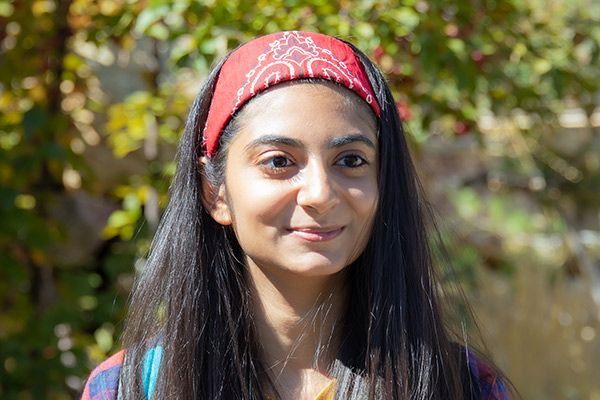
Institution & Field of Study
University of Michigan
Course: Social Psychology
Experience
Kashvi Khanna (SF23) took a pre-recorded University of Michigan class in social psychology. Comprising four units, it progressed in content from the biological aspect to the social. Khanna, who is especially interested in the practical applications of the subject, says, “I found it fascinating that the lecturer described social psychology as the hub and intersection of all disciplines. For example, an engineer may design a perfect tornado shelter, but the shelter will not serve its purpose if people are not convinced to go into the shelter when the tornado hits.” She was thoroughly engaged by the subject matter, and she gained valuable insights into her preferred style of learning. “I never had time to discuss the material with my classmates, like we do at St. John’s,” she says of the course's asynchronous format. “In the future, I will be careful to choose an environment that works for me.”
Profile of Samuel Berrettini (A21)
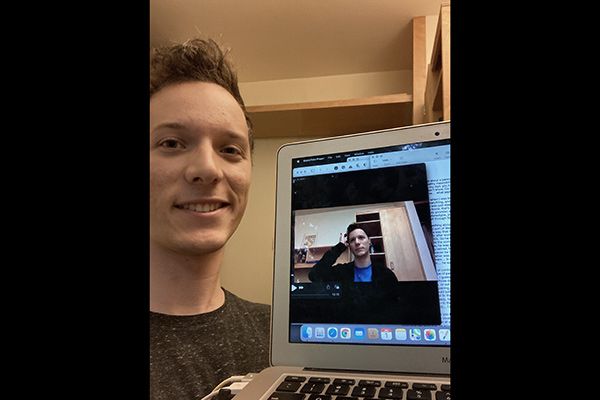
Institution & Position
Point Park University, Pittsburgh, Pennsylvania
Research Assistant
Experience
Samuel Berrettini (A21) worked one-on-one as a remote research assistant for Dr. Brent Robbins at Point Park University. Though he had previous experience interning at Boston University’s Social Learning Lab and had taken online psychology courses, he found Dr. Robbins’s lab to be more clinically oriented. “I had two main responsibilities: conducting interviews for an ongoing phenomenological study on virtuous masculinity, and writing up an IRB [Institutional Review Board] proposal for a planned study on joy, alexithymia, experiential avoidance, and chronic pain,” says Berrettini. Scheduling challenges meant that he was able to complete only a small number of interviews, but the process allowed him to use the listening skills he honed as Johnnie. After completing the internship, Berrettini took a job as a client solutions associate at network counseling firm GLG, but he intends to return to psychology eventually. “Until then, I will still be applying the skills I learned; the ability to do self-directed, data-driven work remotely has already been invaluable to me at GLG.”
Profile of Sophie Frankel (SF25)
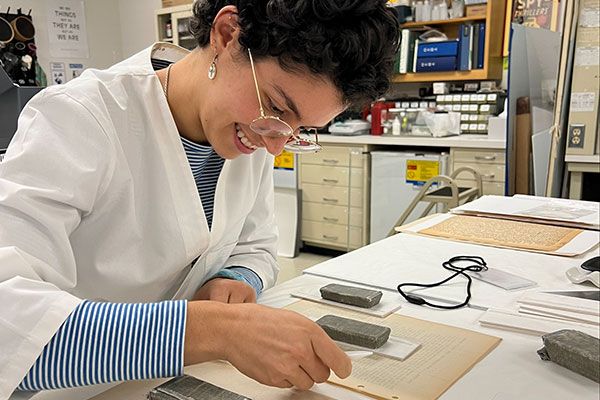
Institution & Field of Study
Conservation Department, Smithsonian National Museum of American History,
Intern
Experience
Sophie Frankel (SF25) interned at the Smithsonian National Museum of American History in Washington, D.C., in the Conservation Department’s paper lab. She spent her summer organizing, repairing, treating, and digitizing American musicologist and folklorist Mack McCormick’s archive, detailing his work to collect information about jazz and blues musicians in the American South from the 1930s through the 1950s. “The collection that McCormick amassed over his 60-year career is one of the biggest and most significant blues archives in the country,” Frankel says. “Our goal was to stabilize his unpublished manuscript for use by researchers and the interested public.” Working in conservation, she concludes, allowed her “to apply the precision and thought processes I’ve developed at the St. John’s lab program. Although we study vastly different subjects, I was able to maintain a sense of curiosity and make choices driven by interrogation.”
Profile of Daniel Han (A22)
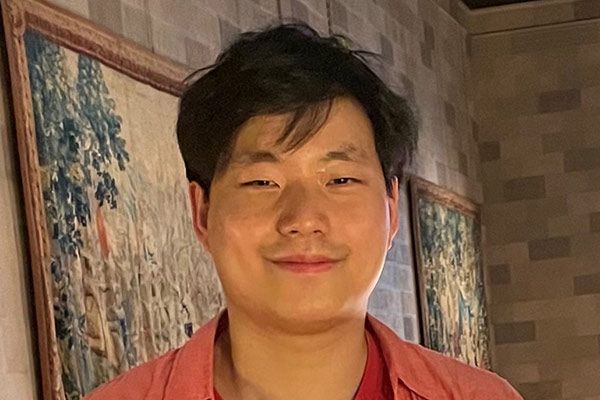
Institution & Field of Study
University of Notre Dame
Course: Augustine: Life and Sermons
Experience
For Daniel Han (A22), a University of Notre Dame course on St. Augustine featured elements similar to the St. John's Program; although there were lectures and slideshow presentations, the majority of class time was spent discussing students’ Latin translations. This interactive format gave Han the confidence to participate in discussions and ask questions—especially of his professor, whom he met outside of class for extra one-on-one support. “I had the least amount of Latin experience in the class and struggled the most with my sight translations,” he says. “I learned that it is okay to be humbled, because that is how you learn and grow the most.” As a result of completing the course, Han has refined his academic goals. He still plans to pursue theology at the graduate level but now also has “the desire to learn more about [Augustine] and the history of the early church fathers [and] to continue my studies of Latin and Greek.”
Profile of Ogden Berry (SF24)
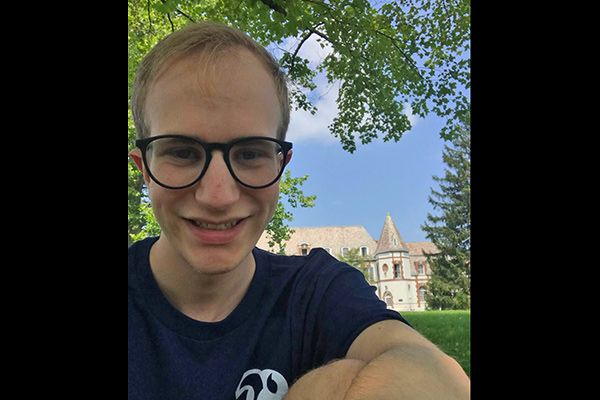
Institution & Field of Study
Middlebury Language Schools
Course: French
Experience
Ogden Berry (SF24) completed an immersive French-language experience at Middlebury Language Schools encompassing phonetics, grammar, and expression, as well as history and culture. His experience studying Greek as a St. John’s freshman gave him a solid foundation for evaluating French grammar; also familiar was the fact that learning continued outside the classroom, with students practicing their language skills over meals and in dorms. Berry is considering a career in language education, and during his seven weeks at Middlebury he connected with French teachers and explored the school’s master’s program. “Not only did I walk away with elevated French skills,” he says, “I became aware of patterns and phrases in English I hadn’t previously considered. The program aided my personal goal of being bilingual and prepared me to have more authentic relationships with French texts.”
Profile of Bennett Scott (SF21)
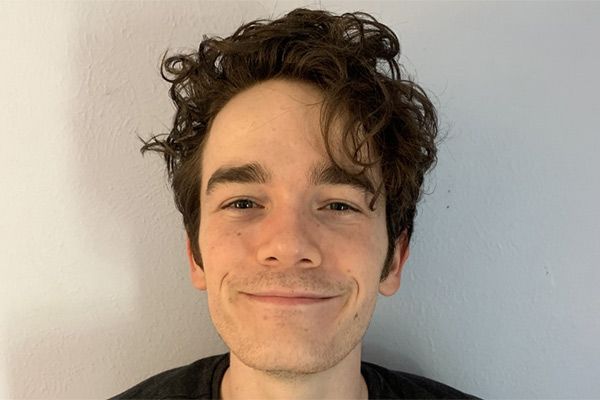
Institution & Field of Study
University of Michigan
Course: Japanese
Experience
Bennett Scott (SF21) calls the Japanese-language intensive course he took online at University of Michigan “the highlight of my summer.” His interest in the language originated in family visits to Japan and an appreciation for the country’s literary tradition, including works by Kenzaburo Oe, Haruki Murakami, and Yasunari Kawabata. “Japanese represents a wholly different living culture, with conjugations and words specifically to show respect and certain relationships to other people,” he says. “This makes speaking in Japanese not just practice in a new language, but in an entirely different way of thinking.” Student participation was encouraged in the small class, and Scott’s experience studying Ancient Greek at St. John’s equipped him with the confidence to experiment with grammatical structures and innovative verbal expression. Scott aims to become a translator of Japanese literature, a process through which, he says, “I will be able to bring great art and cross-cultural understanding to myself and others.”
Profile of Lysithia Page (A23)
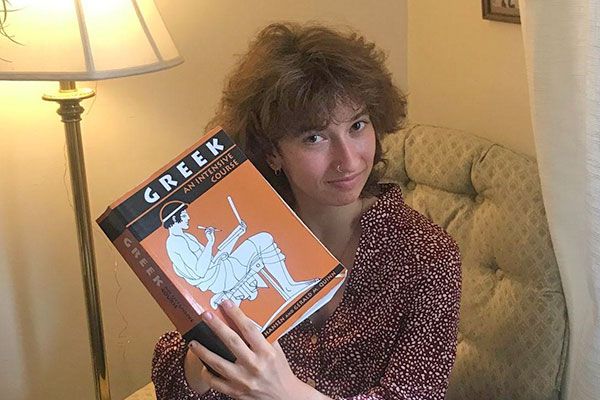
Institution & Field of Study
University of California, Berkeley
Course: Greek Workshop
Experience
Lysithia Page (A23) found that St. John’s provided a strong foundation for a studying Attic Greek at UC Berkeley, where she and her classmates delved into the intricacies of grammar before spending four weeks translating selections from the Iliad and Lucian’s Dialogues of the Gods. “Reading the original text opens up a remarkable degree of richness,” says Page, who was “awestruck by the sheer concentration of verve and wit in each poetic line.” Throughout the course, she pondered the particularities of learning a language, a process where “one must begin with rote nutshell gists of words, and somewhere along the way in the study, one develops an intuitive sense for the fluid, undulating disposition of the multitude.” After completing the Berkeley class, Page went on to serve as a St. John’s Greek assistant and share her love of the language with fellow students.


